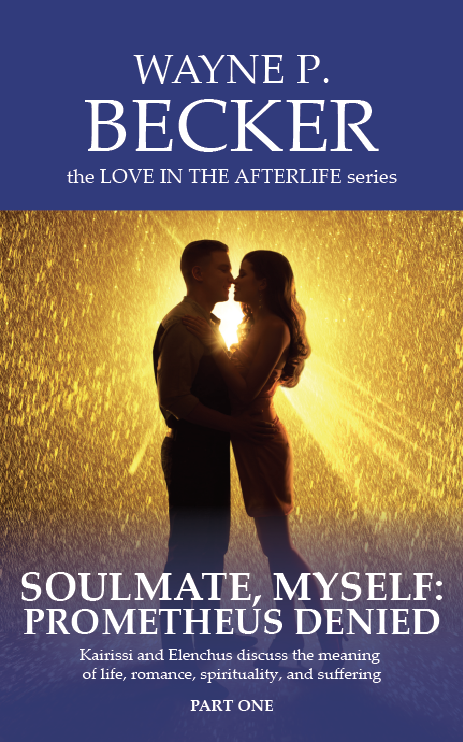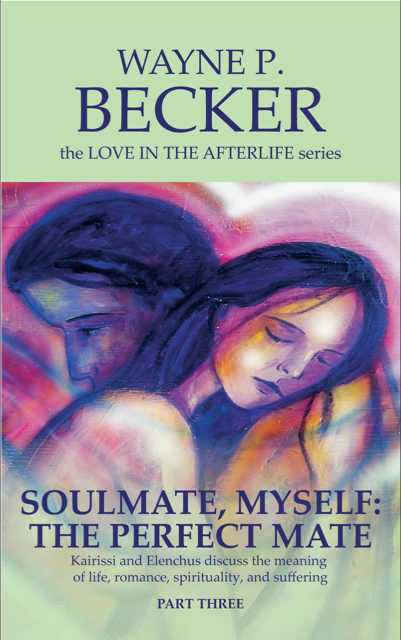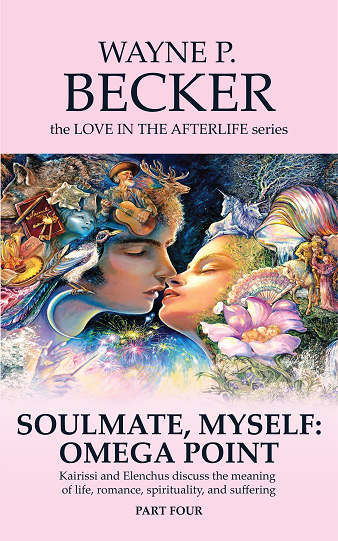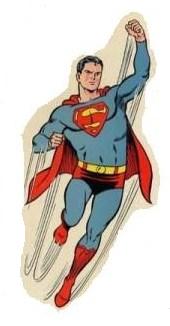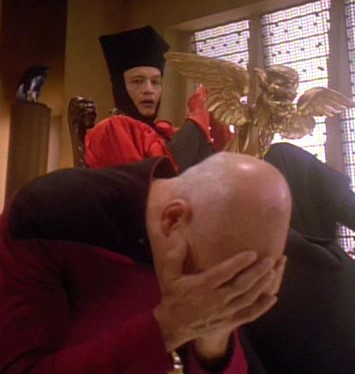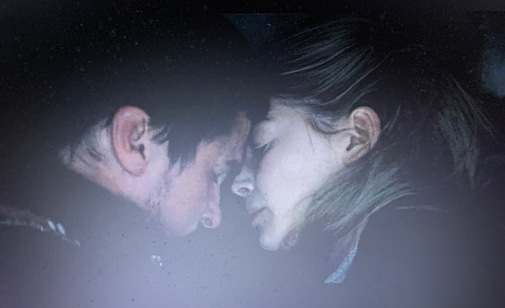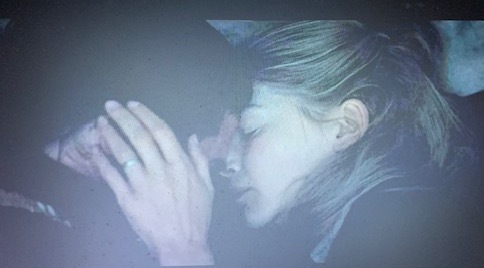|
Word Gems
self-knowledge, authentic living, full humanity, continual awakening

|
"You are here" - how to find your way
around the Word Gems library: READ
|
Afterlife: the 500 tape-recorded messages from the other side
Agriculture, Environment
Aloneness
Anger
Animal
Archetype
Art
Authority
Beauty
Being
Belief, Trust, Faith
Bible
Biology, Chemistry, Physics
Causation, Induction
Certainty
Children, Family
Choice
Clear Thinking
Consciousness, Mind, Brain
Courage
Course In Miracles
Creativity
Cultism
Deception, Propaganda
Desire
Destiny
Divorce
Double-Slit Experiment
Dreams
Economics
Ecosystem
Editor's Favorite Quotations
Education, Teaching
Einstein
Emotion
Eternity, Infinity
Evidence
Evil
Evolution: an 8-year research project
Existentialism
Experience
Failure
Fear
Feminism
Forgiveness
Freedom
Friendship
George Orwell
God
Good
Government
Great Books
Guilt
Habit
Happiness
Hell
History
Honor
Hope
Human Potential
Humility
Humor
Idea
Intuition
Jesus Christ
Joy
Justice, Law
Kant
Knowledge
Krishnamurti & the true self
Labor
Lao Tzu
Leadership, Decision-Making
Life & Death
Light
Love
Lucid Dreaming, Lucid Living
Marriage
Mathematics
Metaparadigm
Morality
Music
Opinion
Person
Philanthropy, Charity, Service
Philosophy
Poetry
Prayer
Pride
Progress, Success
Public Speaking
Quantum Mechanics: a 5-year research project
Reactiveness
Reading, Language
Reincarnation
Repression
Sadness, Sorrow
Satan
Science, Discovery
Sensibility
Sin
Socrates
Soul, Spirit
Spirituality
Suffering
Suicide, Transition, Dying
Summerland
Surrender & Acceptance
Theory-of-Everything
Thomas Paine
Time & Time Travel
Truth
Tyranny
Ultimate Reality
Universal, Necessary, Certain
Universe
Utopia
War, Peace
Wealth, Investment
Wisdom
Worry
Writing, Literature
Zen
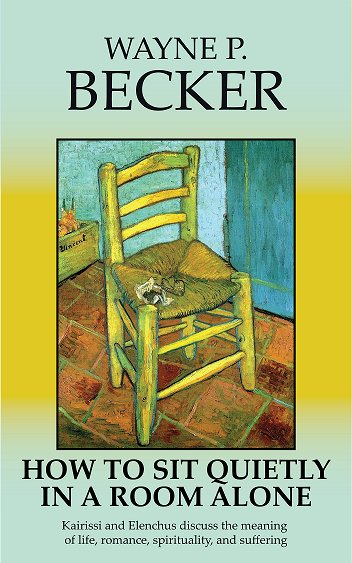 |
new book in production
How to help Your
Child find God

|
| READ |
|
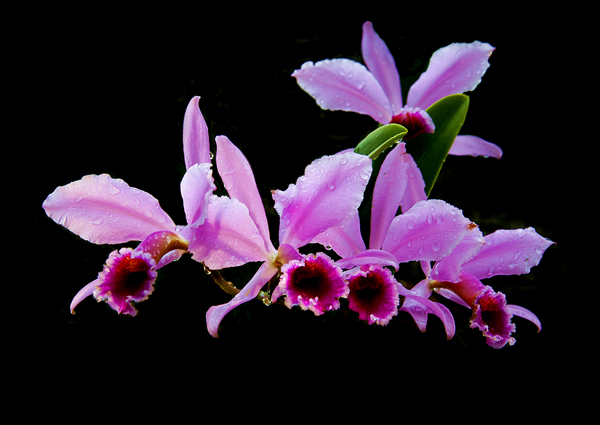
|
come, take choice of all my library, beguile thy sorrow
A library of wisdom is more precious than all wealth, and all desirable things cannot be compared to it. Plato
Of all human pursuits wisdom is the more perfect, the more sublime, the more useful, the more agreeable. Aquinas
All that we have read and learned ... constitutes a spiritual society of which we can never be deprived, for it rests in the heart and soul of [one] who has acquired it. Philip Hamilton
Come, take choice of all my library, and so beguile thy sorrow. Shakespeare
the one equaliser, the only jewel, to evade the grave
The only true equalisers are books ... the only jewel which you can carry beyond the grave is wisdom. J.A. Langford
If minds are truly alive they will seek [for wisdom, which is] the human race ... confronting its problems, drawing the blueprints of [reclaimed, salvaged] futures. Harry Overstreet
Saul fails to become Paul, minds remain tight-shut, progress arrives, if at all, one funeral at a time
A new scientific truth does not triumph by convincing its opponents, making them see the light, but rather opponents eventually die and a new generation grows... rarely, does Saul become Paul.” Max Planck, father of quantum mechanics - Editor’s note: Planck’s dictum is paraphrased as “science progresses one funeral at a time.” Egos, even when defeated on the merits of a case, will not admit to truth. For example, to those who look at the science carefully, it is clear that macro-evolutionary Darwinism is dead, pathetically ignores huge swaths of contrary evidence, has no hope of being correct. Even so, it won't lie down, its “bitter clingers” unable to give this up. An about-face would impliedly admit that the universe harbors intelligent design, meaning, purpose - and they couldn’t agree to that.
noble purpose holds right of way, will yet transform injury into the sacred
The deed is the outward and momentary expression; the motive and purpose are the inner and permanent elements that build up life on the invisible side. One who holds his purpose true to this higher end of life is creating new conditions that will ultimately transform all circumstances. There is no limit to that which he may accomplish. He holds the key to unlimited stores of energy. All aims of a high character bring into being their own ways and means. Every noble purpose holds its own right of way. Lilian Whiting
all laid out in front of you, but won't make you think
I said, "hey man, let's go out and get some wisdom," but you can take a horse to water but you can't make him drink, oh no, oh no, oh no, you can have it all laid out in front of you, but it won't make you think. George Harrison
Books are the treasured wealth of the world… Their authors are a natural and irresistible aristocracy in every society, and, more than kings or emperors, exert an influence on mankind. Henry David Thoreau, Walden
each uniquely reflects the heart of the creator
There is in every person some supreme idea or principle or tendency which pervades the soul ... which sentiment dominates one's entire conduct. This [particularized orientation] is a product of spiritual growth [and reflects a burgeoning of one-of-a-kind soul-riches]. Testimony from the other side via the mediumship of William W. Aber, reported in The Dawn Of Another Life (1910), READ MORE
Embrace this God-life, really embrace it! Jesus of Nazareth, Mark 11, The Message translation
you can’t make the creative act happen, you can only attend to something real
You can’t make the creative act happen. You have to do certain things, otherwise it won’t happen. But it won’t happen while you are doing them… What is required is an attentive response to something real and other than ourselves, of which we have only inklings at first, but which comes more and more into being through our response to it – if we are truly responsive to it. We nurture it into being; or not. In this it has something of the structure of love. Iain McGilchrist
noteless life, small lamp, book, one fragile geranium
I was the slightest in the house, I took the smallest room, at night, my little lamp, and book, and one geranium… this was all, I never spoke, unless addressed, and then, 'twas brief and low, I could not bear to live—aloud—the racket shamed me so, and… I had often thought, how noteless—I could die. Emily Dickinson
confidence about the fate of the soul, one's own root
These are the reasons for which a man can be confident about the fate of his soul, as long as in life he has devoted himself to the pleasures of acquiring knowledge with goodness [and] truth. Socrates’ last words in Phaedo
O human race, born to fly upward … You were not formed to live like brutes but to follow virtue and knowledge. Dante
The wise, nourished by truth, are like a tree growing by a river… the wise derive life from their own root, and their own crop feeds them. Jesus of Nazareth, The Book of Thomas
the work of God in the universe: creating family
Ranga Hilyod, the Great Brahmin: “woman, in [very early] Hindu mythology, stands equal with Brahma, [and maybe a] grade higher, in the work of creating beings having an eternal nature.” Ancient afterlife testimony, reported in Illuminated Brahminism. Editor's note: We see here the encapsulation of our work as children of God: we are to engage in "creating beings having an eternal nature."
awakening, and continual awakening, from the dream
We interpret this dream … as ‘the world’... This Dreaming Reality ... emerges and expands from our gradually awakening consciousness into an evolving ... alive experience of Living Reality that continues to unfold unceasingly — forever awakening. August Goforth
don't be afraid to speak the truth, all will yet have to admit that you were right
Do not be intimidated. Eventually everything is going to be out in the open, everyone will know how things really are. So don’t hesitate to go public now. Don’t be bluffed into silence by the threats of bullies. [They can kill only your body, but there's] nothing they can do to your soul, your core being. Jesus of Nazareth, The Message translation
insights from humble reasonings, laboring alone, searching in the dark
New scientific ideas never spring from a communal body, but from an inspired researcher, struggling [if need be, for years] in lonely thought on one single point. Max Planck
What do you [Kepler] think of the foremost philosophers of this university? … they have refused to look at the planets or moon or my telescope ... the authority of a thousand is not worth the humble reasoning of a single individual. Galileo
There is light within an enlightened person, and it shines on the whole world. Jesus of Nazareth, The Gospel of Thomas
the life-force revealing itself uniquely through you
There is a vitality, a life force ... translated through you into action; [as] there is only one of you in all time, this [artistic] expression is unique. If you block it, it will never exist [and be lost to the] world... It is not your business to determine how good it is ... nor how it compares [but only to] keep it yours [and] the channel open. You do not have to believe in yourself or your work [but only to remain aware to] the urges that motivate... No artist is [ever] pleased... there is no satisfaction [but] only a divine dissatisfaction; a blessed unrest [making] us more alive than others. Martha Graham
invisible fecundity, dimmed light, meek namelessness, hidden wholeness
There is in all visible things an invisible fecundity, a dimmed light, a meek namelessness, a hidden wholeness. This mysterious Unity and Integrity is Wisdom, the Mother of all, Natura naturans. There is in all things an inexhaustible sweetness and purity, a silence that is a fount of action and joy. It rises up in wordless gentleness and flows out to me from the unseen roots of all created being, welcoming me tenderly, saluting me with indescribable humility. This is at once my own being, my own nature, and the Gift of my Creator’s Thought and Art within me, speaking as Hagia Sophia, speaking as my sister, Wisdom. Thomas Merton
universal brotherhood and gratitude, impetus to serve
There is no limit to our progress and even the longest earthly life [with its sufferings] and the longest probation of these dark spheres are but stepping-stones for man to mount to the thrones of angels. Progression is ever possible, even to the most degraded soul. This great truth we preach. And as you have been strengthened and taught, so do you feel bound by the obligations of gratitude and ties of universal brotherhood to help others [achieve the same]. Testimony of a missionary Spirit Guide; A Wanderer In Spirit Lands, A. Farnese
birth and perfection of the whole human being, death of the natural man, total personal revolution
Transformation is a total personal revolution. It begins with repentance… and proceeds eventually to the desired dissolution of all that ordinary people ordinarily value in themselves or others. The result of this dissolution, this death of the natural man, is the birth of the whole human being, the perfection of man, meaning both man as an individual and man as a race, because the process is at once personal and communal. Rosemary Haughton
you will become like me, I will become like you, we will be like identical twins
[Jesus said] Whoever drinks from my mouth will become like me; I too will become that person, and to that person the obscure things will be shown forth. The Gospel Of Thomas
[Jesus said] Since you are my twin [Thomas means ‘twin’] and my true companion, examine yourself, and learn who you are… Since you will be called my [twin]… you will be called 'the one who knows himself.' The Book Of Thomas
truth is not fragile and will eventually rise to the top of competing ideas Tom Campbell
The years of searching in the dark for a truth that one feels but cannot express, the intense desire and the alternations of confidence and misgiving until one breaks through to clarity and understanding, are known only to those who have themselves experienced them. Einstein
beguile thy sorrow, take refuge from life's miseries, in a search for the beautiful
The [true] scientist does not study nature because it is useful; he studies it because he delights in it, and he delights in it because it is beautiful. If nature were not beautiful, it would not be worth knowing, and if nature were not worth knowing, life would not be worth living. Jules Henri Poincare
To seek for the beautiful is its own reward. Nina Fawcett
Come, take choice of all my library, and so beguile thy sorrow. Shakespeare
READ MORE
|
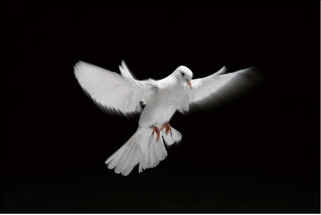
| “The only real revolution is the enlightenment of the mind and the improvement of character; the only real emancipation is individual, and the only real revolutionists," the only ones who effect meaningful and lasting change, "are philosophers and saints." Will & Ariel Durant, The Lessons of History |
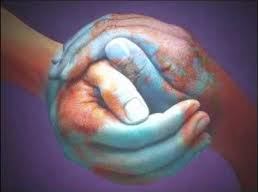
| "Give me thine hand. I believe, someone said, in the beloved community and in the spirit which makes it beloved and in the communion of all who, in will and deed, are its members. I see no such ideal community as yet, but my rule in life is this: Act so as to hasten its coming. Give me thine hand.” John Wesley |

| “The education that I propose includes all that is proper for a man and it is one in which all men who are born into this world should share ... Our first wish is that all men be educated fully to full humanity, not any one individual, not a few, nor even many, but all men together and singly, young and old, rich and poor, of high and lowly birth, men and women - in a word, all those whose fate it is to be born human beings, so that at last the whole of the human race become educated, men of all ages, all conditions, both sexes, and all nations.” John Amos Comenius, 1657 |
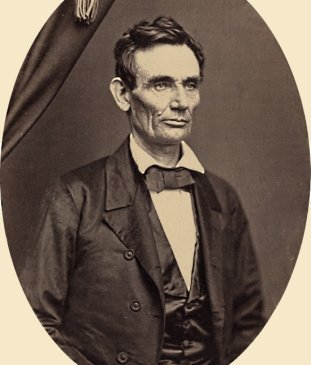
| "I desire so to conduct the affairs of this administration that if, at the end, when I come to lay down the reins of power, I have lost every other friend on earth, I shall at least have one friend left, and that friend shall be down inside me." Abraham Lincoln |
|
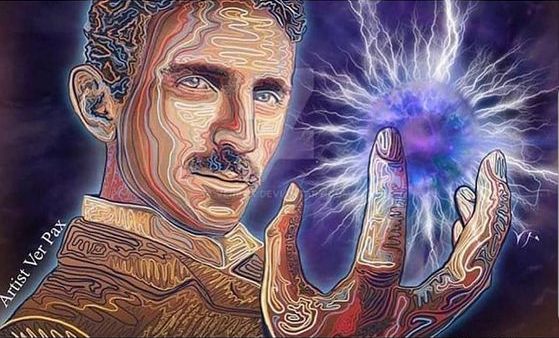 |
|
|
“The day science begins to study non-physical phenomena [the primacy of consciousness], it will make more progress in one decade than in all the previous centuries.”
"Physics extends beyond what is scientifically known today. The future will show that what we now call 'occult' or 'the supernatural' is based on a science not yet developed, but whose first infant steps are being taken as we speak."
“If you want to understand the Universe, think of energy, frequency, and vibration.”
“My brain is only a receiver, [and] in the Universe there is a core [of] knowledge, strength, and inspiration. I have not penetrated the secrets of this core, but I know it exists.”
Nikola Tesla
|
|
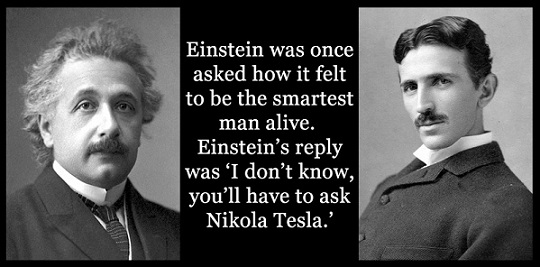 |
|

CHROMA GALAXIES by Roman De Giuli
|
something incredible is waiting to be known
nothing is too wonderful to be true if consistent with the laws of nature
some things are too wonderful to be untrue
|
heroic altruism: “ambitious for the sake of others”


"well, ain't dat sweet, kinda gets ya right here"

I've become the prairie
British historian Kenneth Clark's Civilisation - a survey of history by reviewing its art - thinks out loud about the effect on the human spirit of imperialistic architecture; of colossal palaces and gilt-edged villas; of the oppressively sensuous, and weaponized, sculpture of Bernini's Papal Rome, "calculated to overwhelm and intimidate"; of the carnival appeal of baroque ultra-grand staircases and rococo receiving rooms; of the visual exuberance of French and English nobles' ostentatious estates.
imperialistic art in service of the dysfunctional ego
And the historian concludes that this "sense of grandeur is no doubt a human instinct, but, carried too far, it becomes inhuman. I wonder if a single thought that has helped forward the human spirit has ever been conceived or written down in an enormous room."
There are no enormous rooms where I am right now; here, on this bereft dirt-byway, which, since ancient times, connected Grandpa's farm to Uncle Joe's. I have traveled to some of the "grandeur" spoken of by Clark, and now, well removed from that dehumanizing excess, my spirit lifts as I understand perfectly the venerable historian's doubts regarding a single worthwhile thought ever having been conceived in a monstrous room.
the main drag of the universe
Some might contend that this forlorn cowpath, adorned in muted earth-tones preceding winter, bisects the middle of nowhere; actually, it's downtown on a Saturday night, the main drag of the universe, where Clark said it's all happening... a place of exhilarating personal freedom and solitude... where the mind, in communion with the prairie, unhampered by the madding clatter of an ephemeral world, far from its meretricious and vulgar petition, can experience an intoxicating sense of privacy and aloneness, good company with one's own person.
Simkan, my beloved and loyal horse, when I was seventeen
This, and places like it, I shall often visit for the next million years and beyond. However, there is something missing here for me... Simkan, my noble Arabian-Palomino... two horses, really; and mainly, a friend to share all this.
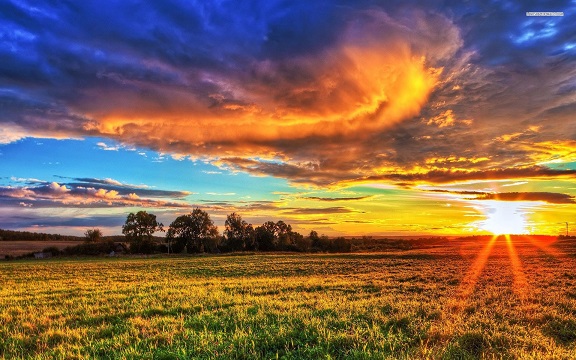
sweating within the nightmare of creation
Victory "over human limitation is not something that can be programmed by science … It comes from the vital energies of masses of men sweating within the nightmare of creation … The most that anyone can do is to fashion something - an object or ourselves - and drop it into the confusion, make an offering of it, so to speak, to the Life Force." Dr. Ernest Becker
beguile thy sorrow with a search for the beautiful
The great thinkers agree with Dr. Becker: a search for, with attempt to create, the beautiful can issue as antidote to the miseries of this life, this “sweating within the nightmare of creation.” Our time on planet Earth, more or less, is a disaster for everyone. Sooner or later, everyone sleeps alone, loses someone, walks the solitary path.
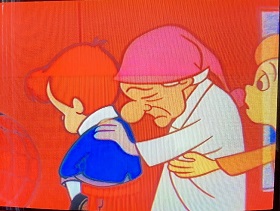
| “A hand for each hand was the plan for the world, why don’t my fingers reach? Millions of grains of sand in the world, why such a lonely beach? Where is the voice to answer mine back? Where are two shoes that click to my clack? I’m all alone in the world!” |
truth fallen in the streets
And how then shall we live and give meaning to this pandemic bereftness, how shall we quest for the beautiful? By “fashioning something,” he says. And what sort of fashioning artist shall we become? A gifted few might honor the "Life Force" by producing a comely “object”.
All, however, are called upon to create the ultimate masterpiece – “ourselves,” our true selves. We pause to marvel that we, “ourselves,” the sacred self as “offering,” might be cast “into the confusion.”
But, in a cynical and inhospitable world, where truth, like Hypatia, has fallen in the streets, brutalized and violated by the mob, we might wonder, what is the value of isolated virtue against a rising tide of fear and illusion?
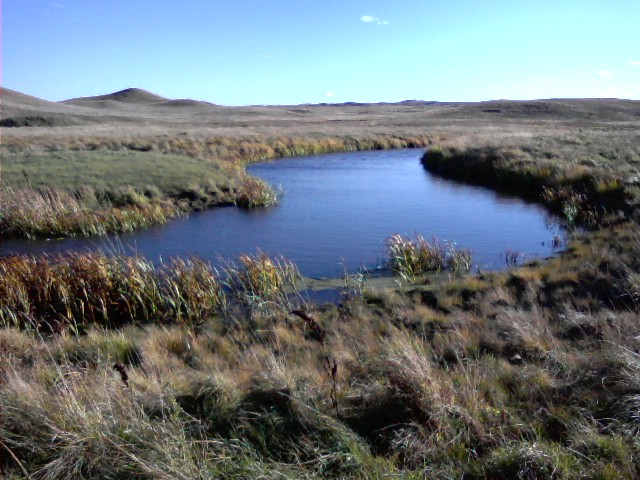
the last freedom
The great souls of history teach us that, even in times of extremity and privation, when all seems lost, even a doubtful tomorrow, a human being retains one inalienable freedom, a claim to veritable godhood: the ability to choose, in the midst of crisis and chaos, one’s attitude toward suffering - "the last freedom," as Dr. Frankl called it.
heightened sensibility and readiness to experience joy
Fortitude as this invites a hidden and unexpected benefit. Suffering endured with equanimous and undespairing mind summons to itself an endowment of what will yet unfold as heightened capacity to perceive wonder and bliss; for, as Elizabeth explained to Robert, "the fullness must be in proportion to the vacancy."
Stated differently, by a next-world entity, this life is an “opportunity of education offered by the resistance of matter, and the strength engendered by the force necessary to overcome it.”
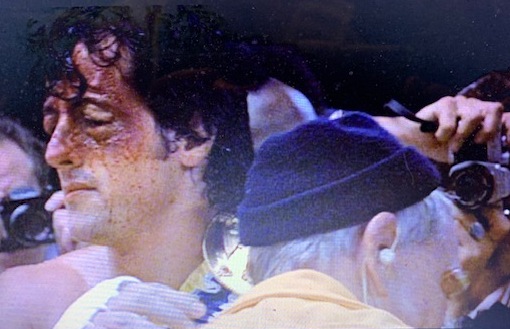
'divinely appointed mechanism'
This requisite striving and resistance serves as “explanation of the perpetually recurring vexations, disappointments, and misfortunes,” a severe curriculum, wrote Lilian Whiting, “the divinely appointed mechanism to develop the higher qualities. How does one acquire patience, serenity, generosity, save through their exercise in meeting trials and sorrows?
"These obstacles are as essential to spiritual development as the practice of the scales to the development of the skill of the pianist.” With this view, “defeat and disaster are as valuable in relation to the wholeness of life as are triumph and prosperity."
the making of a great man or woman
While Whiting’s view is likely correct, it could seem too high-minded for those struggling to make it through one more day on planet Earth. In my own life there was a time when I would frequently ask God to allow me to leave the suffering of this world; those were dark days.
But Dostoevsky saw more clearly: “Pain and suffering are always inevitable for a large intelligence and a deep heart. The really great men [and women] must, I think, have great sadness on earth.”

a choice of life or death
And I began to understand what he meant: Pain and suffering, if we allow, invite a certain concentration of mind, leading to decision: Will I choose life or death? If life, I will find myself rising above the engulfing turmoil; and, in this elevation, I become stronger, more able, with augmented intelligence and wisdom, acquire a sturdy maturity - not just for myself but for others who might yet be instructed by my lesson learned.
In so doing, do we not take our place among Dostoevsky’s pantheon of “great men” and great women? With discomfort, however, we also perceive that the greater the pain and suffering, the greater the opportunity for mental and spiritual advancement.
artistry of the highest sort
In the wake of this stern classroom, people react differently: some become saints while others become swine; some virtuous, some vicious; some courageous, some cultish. One's response is part of the self-creating process, artistry of the highest sort; by design or default, as Dr. Becker said, we all "fashion something," make an "offering" of ourselves and "drop it into the confusion," the seemingly endless nightmare on this planet.
But, if we lament that our present "offering" issues as base rather than precious metal, not to worry, we always get another alchemical chance to turn lead into gold, to refashion ourselves as fully human; indeed, as I was once encouraged, "as many chances as we need to get it right."
we all have the same primary purpose in coming to this world
There is a primary purpose for which we came to planet Earth; as Erich Fromm put it: "The main task in everyone's life is to bring himself to light." Failing this, we shall be required to "hand in overdue homework" in remedial classrooms on the other side.
Therein, all will yet succeed - no student left behind; and, in this manner, we shall enjoy the "many chances as we need to get it right."
apotheosis: an inexhaustible godlike capacity, with no discernible limit to human potential; an expansive horizon, as far as the eye can see, and beyond
In a letter to a friend, I contended that “I’ve become the prairie.” It wasn’t always so. I exaggerate but little to say that it took me virtually all of my life to grow up. In my youth, a time of shocking unawareness, I conceded deference, even until middle age, to those who -- like the Wizard, merchandizing his people, fulminating behind a curtain with smoke-and-mirrors -- postured authority over my life but, in fact, had none.
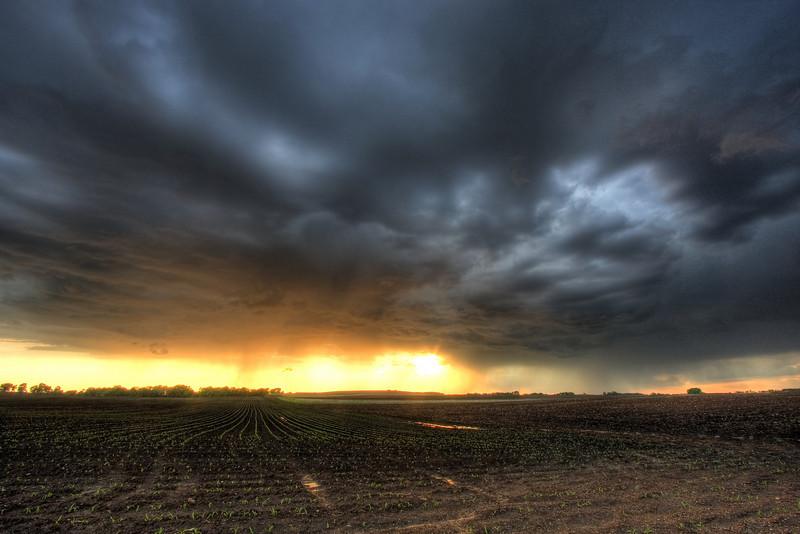
the 'absolute sovereignty of the individual' principle
When eyes finally opened, however, I left behind the inculcated illusions of limitation imposed by Dear Leaders and, in spirit and heart, became the prairie. Its magical panorama of endless horizon -- unbounded, untrammeled, unfettered -- symbolizes, for me, a sacred autonomy, an invitation to full humanity, an infinite human capacity, a measureless inner cosmos -- vast, wide open, without discernible limit -- the wondrous destiny of every creature "made in the image."
While totalitarians will dismiss and ridicule, philosophers and saints have expressed this as "the absolute sovereignty of the individual" principle; no one, not even oneself, is allowed to abrogate, or delegate away, this sacred mandate for self-determination. Those who attempt to do so, virtually by definition, brand themselves as cultish elements of the world, in all guises: autocratic-materialistic religion, science, business, academia, politics, or any other encroachment upon the purview of human freedoms.
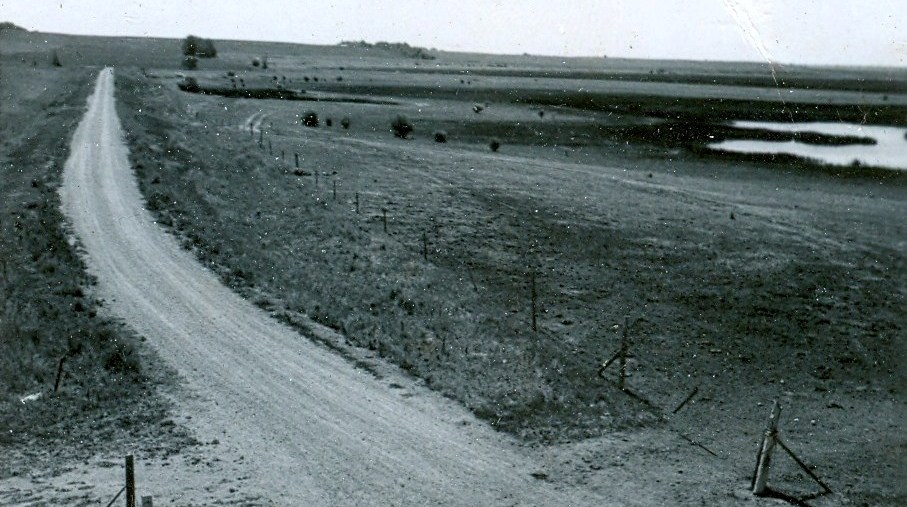
become who you really are
The dramatic and most complete unfolding of the "inner riches," of becoming all we were meant to be, will not occur in this world but awaits the next. What matters now, as we learn from van Gogh and Wordsworth, is to allow a childlike wonderment of the soul's beauty; what matters now is to access the existential flow, an “open channel” to higher creativity’s illimitable evolvement to come; what matters now is the state of consciousness we bring to whatever we do.
beleaguered pilgrims all, sojourners in a strange land, so very far from home
For the little boy sorrowing in the corner, this view concerning expansive creativity is sometimes too high to reach.

He represents EveryPerson, a beleaguered and beset pilgrim, "all alone in the world," making his way through a foreign land. He has lost someone, that one voice, he says, meant to “answer mine back”; that hand, he insists, perfectly designed to complete his own.
the chivalrous knight of faith
Kierkegaard famously suggested how to negotiate this world's endless ordeal of suffering. He spoke of the chivalrous “knight of faith.” Consecrated in spirit to the Great Source Of Life, the noble knight trusts for successful outcome regarding this seemingly disastrous trip to planet Earth.
He does not join the world's frenetic activities, seeking for pleasure or mammon as highest principle, is not directed by egoic stratagems to "get more," but, instead, has centered the deeper self in what Krishnamurti called “truth as a living thing” or, as the Gospel Of Thomas has it, “the light within.”
As such, the knight of faith, the ideal woman or man, a sublime admixture of philosopher-artist-philanthropist, cultivates virtue in all aspects of life:
self-abnegating and unpretentious; slow to wrath and quick to excuse an offence; seeking beauty and goodness, a larger field of vision, a quest for sacred meaning and purpose; resolving, if necessary, to labor alone, honoring the truth, daily received in glimpses, via the "still small voice"; pursuing wisdom for its own merit, with no thought of external reward; quietly serving the disadvantaged, as opportunity allows, with the goal of developing a mature altruistic mind, equanimous and multifaceted, capable and willing, to minister to anyone's need, even those who've set themselves as enemies.
is human moral growth even possible

| Breakthrough: “Spiritual practice must be uninterrupted. We may be anxious because we see very little happening on a daily basis, but we must be patient… After long self-cultivation, one’s accumulated energy reaches a threshold and then bursts out, like a swan rising from the water… Once you have reached this level of stored energy, you will be a different person.” Deng Ming-Dao, 365 Tao |
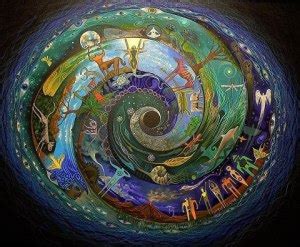
awakening to full humanity
Word Gems offers a masthead: “self-knowledge, authentic living, full humanity, continual awakening.” Why the emphasis on personal change? The great psychologists inform us that this is what we all avoid.
why has there been little, or no, moral progress during the last 10,000 years
Dr. Ernest Becker comments: Man has built culture and civilization as aid to self-repression, a dynamic “unique to the self-conscious animal.” Repression “is normal self-protection and creative self-restriction - in a real sense, man's natural substitute for instinct." However, all this narrowing down, this sliding into neurosis and “partialization,” quickly becomes pathological.
what is keeping us from authentic change - not just wearing a new mask while the heart plots its next assualt
"Maslow used an apt term for this evasion of growth, this fear of realizing one's own fullest powers. He called it the ‘Jonah Syndrome’ [for the biblical character who ran from] the full intensity of life.”
a thousand fears are but one; each devolves to the primary fear of death
Freud taught that repression's focus is “of sexuality, of pleasure, of life and expansiveness,” however, this is correct only in part; mankind is “primarily an avoider of death. Consciousness of death is the primary repression, not sexuality. The ironic thing about the narrowing-down of neurosis is that the person seeks to avoid death, but he does it by killing off so much of himself, and so large a spectrum of his action-world, that he is actually isolating and diminishing himself and becomes as though dead."
“Freud's greatest discovery … is that the great cause of much psychological illness is the fear of knowledge of oneself - one's emotions, impulses, memories, capacities, potentialities, of one’s destiny."
massive self-contradiction
Consider this stark contrast: Dr. Federico Faggin may be the greatest inventive-genius mind in the world today. He’s also a leading researcher in the new science of consciousness. And he says that the most fundamental attribute of Universal Consciousness is a desire to know itself. Therefore, as our own consciousness exists as derivative, our own most deeply embedded penchant mirrors an ideal form.
Is this not incredibly ironic? Freud told us that our greatest fear may be to know ourselves, and yet it’s also our greatest craving! We must ask, what is the psychological fall-out, the inevitable dysfunction, of this massive self-contradiction?
why are we afraid of change
This “fear [of self-knowledge] is defensive, in the sense that it is a protection of our self-esteem, of our love and respect for ourselves. We tend to be afraid of any knowledge that could cause us to despise ourselves or to make us feel inferior, weak, worthless, evil, shameful. We protect ourselves, and an ideal image, by repression and similar defenses which, essentially, are techniques by which we avoid becoming conscious of unpleasant or dangerous truths.”
|
like a tree growing by a river - leaves always green, never failing to bear fruit

Golden Expressive Landscape oil by Vanya Georgieva
The enlightened person is not immune to the sufferings of this world. And yet, in the midst of unease, there is a sense of needing nothing, a larger perception of abundance and plenitude, a self-sufficiency, a quiet confidence.
One who has discovered the “made in the image” inner riches is ever nourished by Source. This hidden wellspring, an unseen reservoir of refreshment, allows the godly woman or man to prosper, or make the best of any situation, in the difficult classroom that is planet Earth.
Sometimes alone, with a preference for fellowship, but never lonely, and never afraid of death.
READ MORE
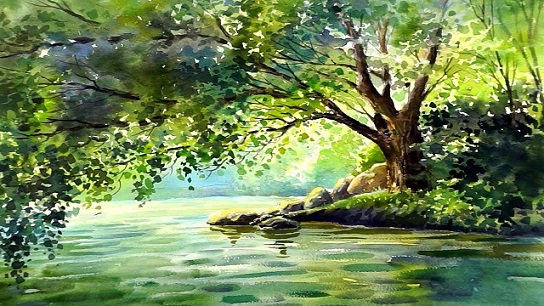
watercolor by Tree Landscape Painting Factory
|
'a pain so utter'
Some of the great poets address this issue of universal repression. We recall Emily Dickinson’s memorable line,
There is a pain, so utter,
it swallows Being up...
where an open eye
would drop him — bone by bone.
'inward bedlam and not come out'
or Marcia Lee Anderson’s,
We multiply diseases for delight,
invent a shameful want, a horrid doubt,
luxuriate in license, feed on night,
make inward bedlam — and will not come out.
Who would crawl out from under the obscure
to stand defenseless in the sunny air?
embedding ourselves in other-power
Over the years, I’ve often thought of Anderson’s standing defenseless in the open sunny air. For this is exactly what we are unwilling to do. Instead, as Dr. Ernest Becker employs the phrase, we “embed ourselves in other-power.” What does this mean?
we seek for safety and security from some strong father-figure
Almost 100% of the perplexed and besieged denizens of planet Earth are engaged in some aspect of cultism, be it the political, religious, or corporate variety.

Cultism is not what you think. It is to unwarrantedly seek protection from this world's uncertainties and threats by surrendering autonomy and critical-reasoning faculties to various forms of Dear Leader. It is to refuse to stand defenseless in the open sunny air. All this fear-of-life leads us to repression.

standing defenseless in the open sunny air, embracing the inner life
Why stand defenseless? We can afford to – because, while a materialist view will fail to discern, there is an underlying Intelligence guiding our lives. Lao-Tzu, Socrates, the Stoics, Jesus, Tesla, Faggin, the quantum fathers, Emerson and the transcendentalists, Jefferson, Franklin, Lincoln, Dickinson, Barrett, Sir Oliver Lodge and the great afterlife researchers, with a chorus of many others, have perceived this superintending force in the universe.
the ego, like a cat sleeping with eyelids ajar, can never let down its guard

The Word Gems writings might be characterized in different ways; some of it, a repository of “afterlife evidence.” But Summerland will do us little good until we come to terms with the pandemic repression besetting us.
we repress not just information but ourselves, our true selves
The next world is replete with the neurotically off-balance, untold millions of them; even though they now enjoy non-mortal bodies, many still suffer the fear of death, which, at core, is the ego's terror of annihilation.
inauthentic living: the peter-pan child, refusing to grow up, seeking comfort and shield from Dear Leader

As we learned in the “500 tape-recorded messages from the other side” writing, this dysfunctional condition will not heal itself with mere time, nor with transitioning to the other side.
It can be remedied only by an open-eyed non-cultish approach to life. See the lectures by Krishnamurti for further discussion, especially his "summary" address.
returned to rightful owners
The good news, for those who begin to live with open heart and open mind, is that our time in this world, this “sweating within the nightmare of creation,” comes with expiration date.
ascribing solidity to wind, deeming this world as priority
In one missed heartbeat, everything will change, the current scenery and stage-props will be gone. Ready or not, the "real world" will abruptly present itself.
Right now, like the ancient Roman Empire lasting a thousand years, this world seems very permanent. However, in that missed heartbeat, illusion will crumble, we will enter a new phase of our eternal lives. In our home-world, closest friends and dearest ones are returned to rightful owners.
love in the afterlife
These “dearest ones" include, of course, one’s eternal romantic mate, but there are others whose absence we grieve. Father Pierre Chardin well expressed the yearning:
longing for communion
“There is almost a sensual longing for communion with others who have a large vision. The immense fulfillment of the friendship between those engaged in furthering the evolution of consciousness has a quality impossible to describe.”
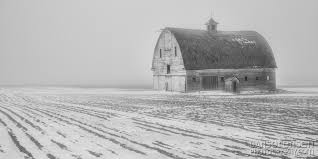
How shall this grand uniting of like-minded ones occur? Chardin continues:
“Remain true to yourself, but move ever upward toward greater consciousness and greater love! At the summit you will find yourselves united with all those who, from every direction, have made the same ascent. For everything that rises must converge.”
eden reclaimed
This return to rightful owners, this cosmic accord and oneness, indeed, "was the plan for the world” – a sentiment alluded to by Jesus' phrase “from the beginning”; that is, the original, ultimate plan of God, as opposed to a current, provisional plan, meant to address temporary exigencies related to humanity's present lack of maturity.
In that coming day of “knowing as we know ourselves,” eyes will finally open, we shall enter a mystical realization of all that we are, all that we were meant to be, the unfathomable treasure-trove of inherent ability. This shattering discovery will occupy our studied focus and happiness -- the joy of simply being alive -- for a very long time to come.
| for a discussion of the awesome, far-reaching, civilization-forming effect of ‘grandmother power’ see HERE |
the uncountable riches within
There’s much inherent ability to unpack, to manifest, in this blossoming of personhood. God needed to invent eternity for sufficient time to bring to the surface of reality the latent treasures of the sacred inner self. Would that we all might become the unbounded prairie.
a prodigal's return to paradise, the familiar hand and voice regained
Walking the magical prairie, it should also be noted, is a very good place to reclaim that "hand for each hand," that "voice" meant to "answer mine back"; - the prairie, where all journeys, as quest for the beautiful, finally end.

I always held you longer...
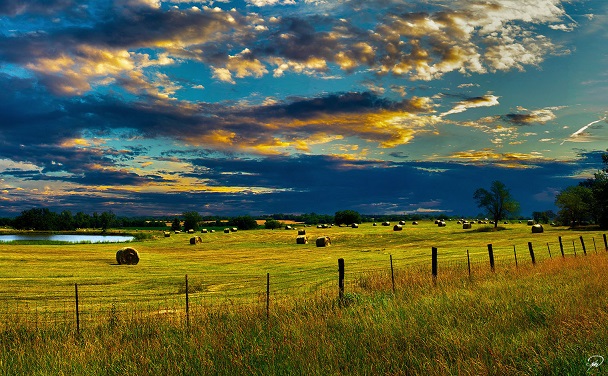
| "We trespassed, field to field; you, glad of my arms each time a fence challenged us; I, always held you longer than it took to help you over." Walter Benton, This Is My Beloved |
|
the endless horizon, overwhelmed by images of eternity, wishing that others could see what I see
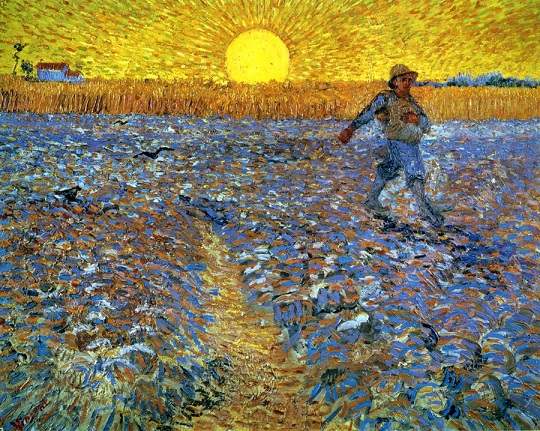
|
“When facing a flat landscape, I see nothing but eternity. Am I the only one to see it? I want so much to share what I see.” Vincent van Gogh
|
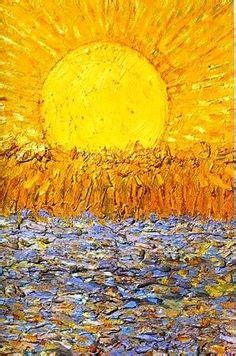
READ MORE on "What is art?" and "What is beauty?"
|
charting the unknown possibilities of existence
|
|
“For that one fraction of a second you were open to options you had never considered. That is the exploration that awaits you - not mapping stars and studying nebulae, but charting the unknown possibilities of existence.”
|
|
the courageous champion of personal freedoms, vilified by vested interests
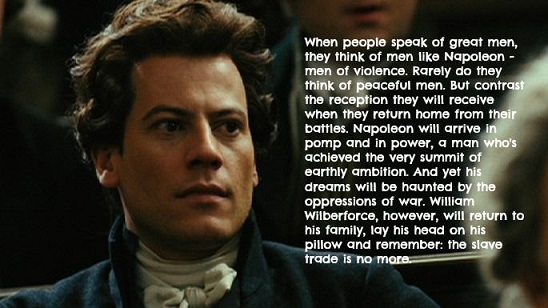
|
In 1787, a young Englishman, William Wilberforce, became aware of the atrocities of the African slave trade. So moved was he that, against all odds, against powerful political and economic interests, often working alone, he began to wage war on this barbarity. Very slowly, by inches, as prosecuting attorney for the truth, he would turn public opinion against the great inhumanism. Finally, after decades of crusade, during which he was constantly attacked, threatened, and vilified by the privileged, Parliament set as law The Slavery Abolition Act of 1833 throughout the entire British Empire. Wilberforce's struggle was not unique: every reformer, as guardian of sacred freedoms and human dignity, intent upon overturning the vested totalitarian interests, the "money-changers' tables," will face kangaroo-court treatment in this world. See William Wilberforce in the motion picture, Amazing Grace, and read more on the "Economics" page.
|
-
|
the pale blue dot

a photo of Earth, February 14, 1990
by Voyager I, 4 billion miles from home
history's sordid drama played out on a single pixel of light, a mote of dust suspended in a sunbeam
“Look again at that dot. That's here. That's home. That's us. On it everyone you love, everyone you know, everyone you ever heard of, every human being who ever was, lived out their lives. The aggregate of our joy and suffering, thousands of confident religions, ideologies, and economic doctrines, every hunter and forager, every hero and coward, every creator and destroyer of civilization, every king and peasant, every young couple in love, every mother and father, hopeful child, inventor and explorer, every teacher of morals, every corrupt politician, every 'superstar,' every 'supreme leader,' every saint and sinner in the history of our species lived there - on a mote of dust suspended in a sunbeam.
rivers of blood, momentary masters of a dot-fraction
“The Earth is a very small stage in a vast cosmic arena. Think of the endless cruelties visited by the inhabitants of one corner of this pixel on the scarcely distinguishable inhabitants of some other corner; how frequent their misunderstandings, how eager they are to kill one another, how fervent their hatreds. Think of the rivers of blood spilled by all those generals and emperors so that, in glory and triumph, they could become the momentary masters of a fraction of a dot.
“Our posturings, our imagined self-importance, the delusion that we have some privileged position in the Universe, are challenged by this point of pale light."
Dr. Carl Sagan, Pale Blue Dot: A Vision of the Human Future
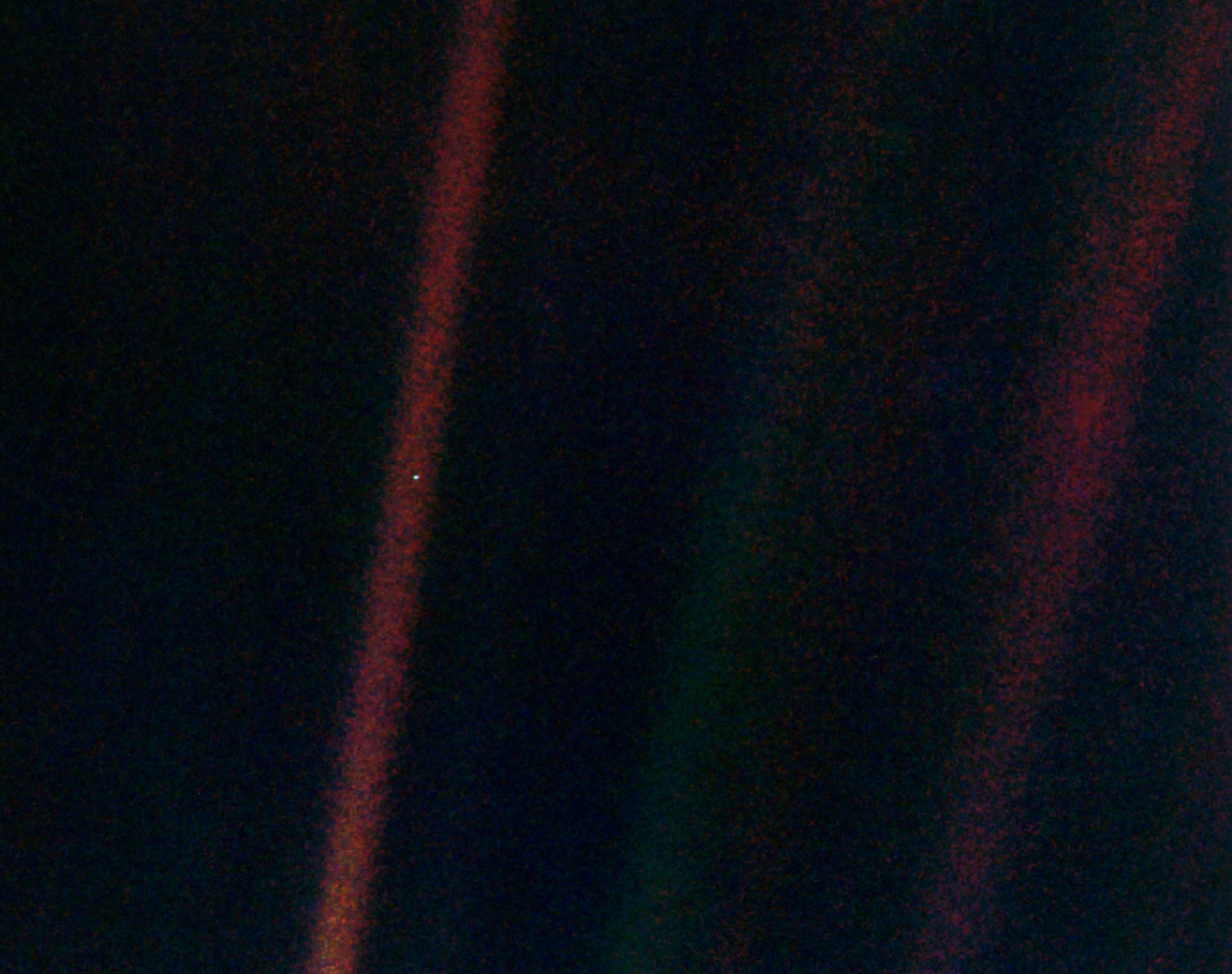
Editor’s note: Travelling at 38,000 miles per hour, 10 miles per second, Voyager I finds itself 16 billion miles from Earth. Now sailing outside the Sun's neighborhood, trekking 333 million miles a year, it's en route to a nearby star-system; eta, 40,000 years. Launched in 1977, Voyager may yet become the last vestige of evidence that Earthlings ever existed: our Sun, in its future death throes, will one day envelop "the pale blue dot".
As we pass the time until then, the “aliens” out there do not seem very eager to make contact. As one Summerland dweller wryly commented via Leslie Flint, “They probably don’t want to contaminate themselves.”
the sun will one day explode

Dr. Carl Sagan: After our planet "dies, some 5 billion years from now, after it's burned to a crisp by the [exploding, super-nova] Sun, there will be other worlds and stars and galaxies coming into being - and they will know nothing of a place called Earth." “Man and his achievements,” said Dean Inge, “will one day be obliterated like a child's sand-castle when the next tide comes in.”

|


|
Nature is not at war, one organism with another. Nature is an alliance founded upon cooperation; an exquisite harmony and proportion, a grand symphonic mutualism, a perfect balance and order of symbiotic ecosystems. There is no "dog eat dog," no "law of the jungle"; except among dysfunctional humans, needing remediation.
|
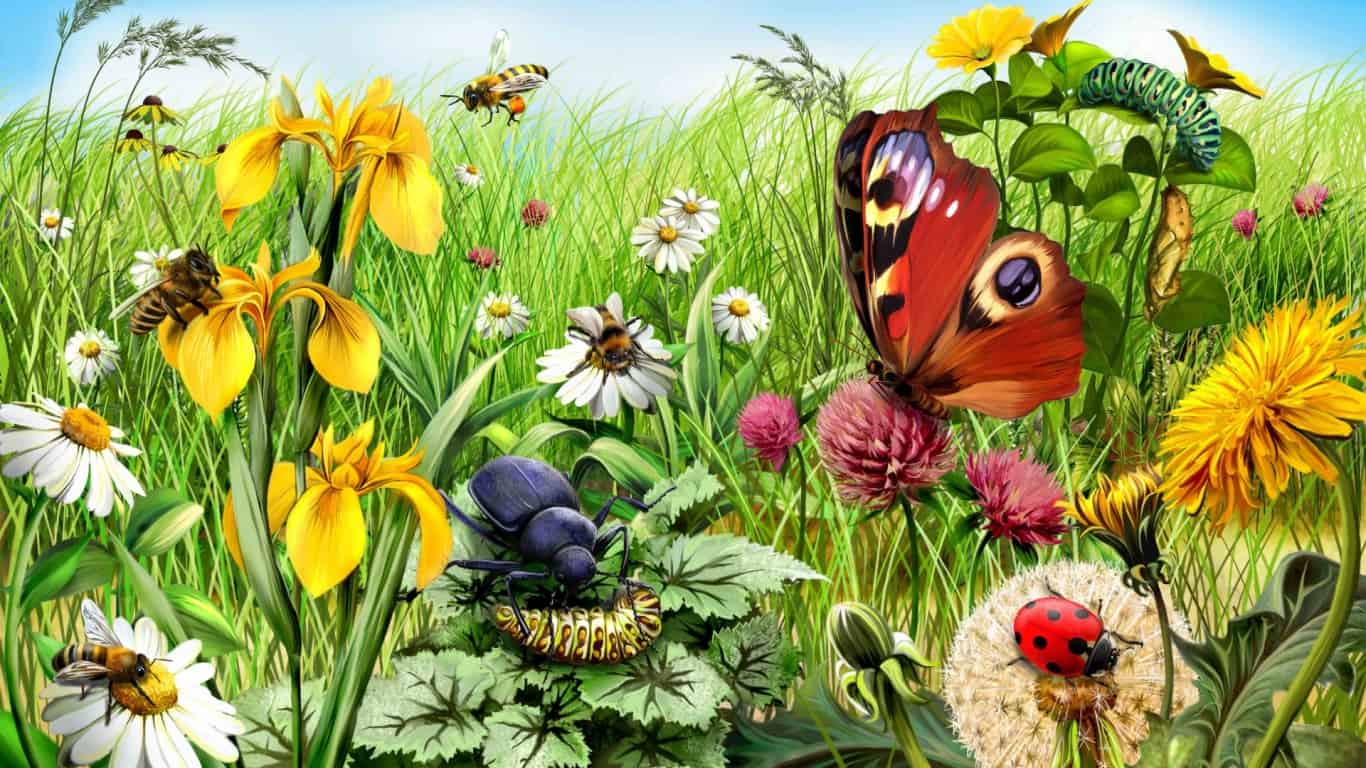
|
oh, beloved, how much I lost in losing you, only God knows; I just wanted you and nothing from you

the Flower of Life pendant
Heloise’s love-letter to the religiously fearful Peter:
“You know, beloved … how much I lost in [losing] you… Never, God knows, did I seek anything in you, except yourself; I wanted only you, nothing of yours... I would have had no hesitation, God knows, in following you, or going ahead, at your bidding, into Hell itself."
my heart, without you, I learned too late, is nowhere, and now, without you, cannot exist
"My heart was not in me but with you, and now, even more, if it is not with you, it is nowhere; truly, without you, it cannot exist… farewell, my Only Love.”
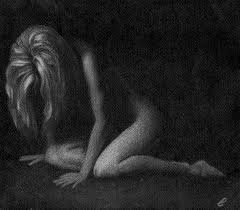
|
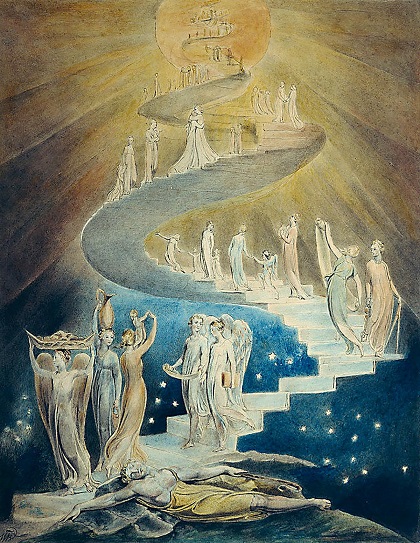
| Jacob’s Ladder by William Blake (c. 1799–1807). Dr. Iain McGilchrist sees an image of spiritual progress, which ‘moves very beautifully in a spiral. As we ascend, we see how we thought we had the truth when we didn’t, lower on the staircase, and how the staircase winds upwards as far as we can see’. This would mean that we never see more than our attained level of consciousness allows. The staircase also suggests that each develops at his or her own rate, each lives on a different level of maturity. READ MORE |
|
I ran to the one whom my soul loves, held him tightly, and would not let him go

oh, the joy
"I will rise now in the night and seek the one whom my soul loves. I sought him but found him not. Breathlessly, I implored the watchman of the street, 'Oh, have you seen him, have you seen the one whom my soul loves?' But I found him not. I continued searching, desperately searching in the night; then, finally - oh, the joy! - my eyes met the one whom my soul loves. I ran to him, held him tightly in my arms, and would not let him go." Song of Solomon
|
Editor’s note: This vignette of lost love, written thousands of years ago, becomes universal metaphor of midnight confession, 3 AM introspection, endless searching in the soul's long dark night, for an absent someone.
|
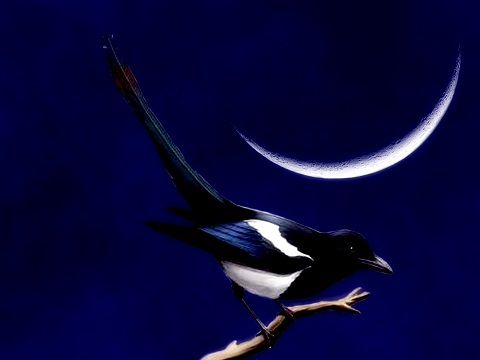
|
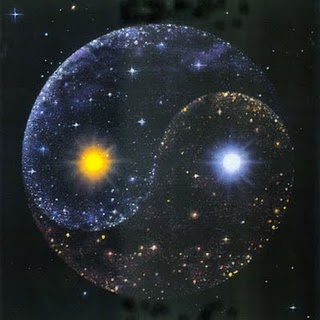
|
what we stay alive for
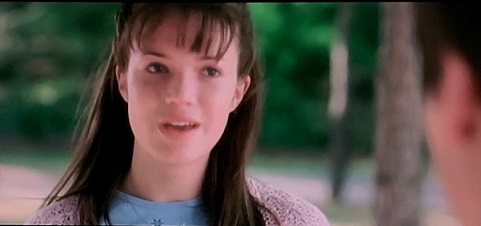
|
to remain steadfast in belief, despite lamentation over what we've done to each other, and to ourselves - the missteps of youth, the spurned opportunity, the unprepared heart, the glassy-eyed sensibility, the quick-draw shoot-first temper, the self-serving and epic miscalculations, the walking away from irreplaceable elation simply to be together, the puerile torpor of mind, the insensate worm only vaguely aware of the light -

that love endures, the ember still warms, beneath the charred rubble of the lost years;
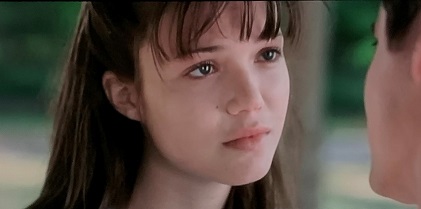
moreover, to trust, though it delay for a “thousand summers,” that Heaven's gift will finally arrive, or return; in this protracted waiting, "too long a sacrifice," Yeats wrote, "can make a stone of the heart"; Emily Dickinson, too, surveying the wreckage of lost love, conceded that waiting "centuries" would be her limit; the true mate, however, sets himself to wait, as long as necessary;

but, this fortitude is not entirely selfless; for, the love he once knew is not to be found in any pretty face, and, as he's learned, there will be no reason to live, without it; therefore, he waits, and builds his life around a central trace of certainty, the whispering soul-assurances of inevitable reunion;

to surrender to Rilke’s dictum, that, no matter how much one has lost in life, no matter the insanities of an earlier time - the disastrous illusions, the defiant attempt to construct an alternate happiness, the betrayal of unspoken pledges, the mistaken identities, the besotting infatuations, the riches-to-rags negotiations, the ill-fitting new covenants, the ruinous mirages of romance, the unrecognized savior, the bartering away for magic beans blunder, the cavalier torching of long-defended bridges, the impudent repudiation of earlier 'constructive assent', the profane trampling of sacred 'what ought to have been', the vengeful unreturned call to life;
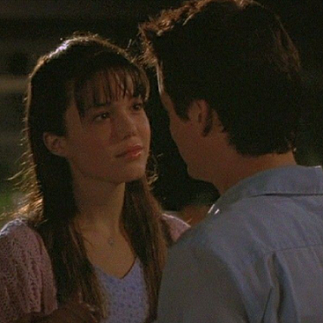
yes, after all this, no matter how unlikely, now discounting the spectacular walking away, the breath-taking ill-consideration, the legendary disavowment - a continuing and durable love, Rilke assures, “is being stored up for us like an inheritance”;
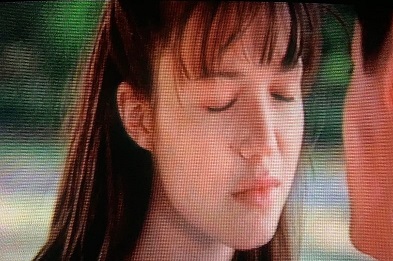
an inheritance as spendthrift trust, beyond the squandering reach of an immature beneficiary; that, despite best efforts to derail and defraud ourselves, it is our destiny to find authentic and perfectly-matching love; that, God created us to live in soul-completing union with a sacred beloved; and, therefore, we must live life accordingly, mindful of the blessing to come;

to save and consecrate oneself for heaven-arranged relationship, for holy romance and God-directed marriage; the ardent nexus of mind touching mind, to be known even as one knows oneself;
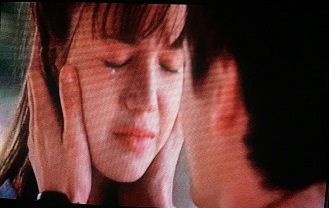
an other-worldly intimacy, a delicious communion, like musical notes in mesmerizing harmony, the dreamed-for "union of spirits"; as the poet has it, “the great relief of having you to talk to,” but, even more, the utterly great relief of escaping solitary confinement of numbing aloneness, the winter-without-spring of the sequestered inner person;
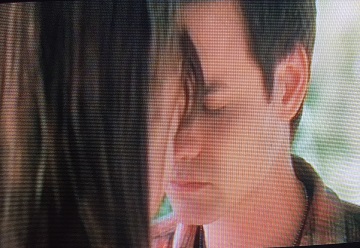
to stand unguardedly in the open sunny air without repressing one's spirit, the true nakedness; to make oneself vulnerable, risking one's dignity, speaking right out loud, daring to speak of the unanswered prayers, the tarnished hope for love; great despair comes for a reason, comes only when a love that might have saved us disappoints; in this ultimate destitution, we easily fail to see purpose in staying alive;

but now, after so long a time, long after reasonable expectation of favorable outcome, the spectre of love-lost as returning from the dead, from the graveyard of buried expectations for happiness - now, suddenly, the faintest bestirrings, former dreams rise unbidden, redistill as reality, "ludicrous propositions" debut in royal purple, soul pledges come of age, unpublished confidences vivify and embody, in the prospect of her coming, the celestial radiance, the personification of life's meaning, that is the sacred beloved;
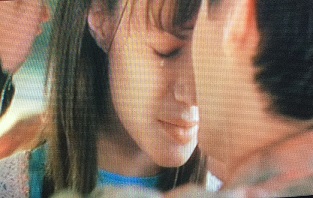
the rekindled hope: to be accepted and desired, for what one is, the true inner person, without mask or role-playing; the heart's supplication to be known, to be cherished as unique treasure, and this, with Elizabeth, sans "parceque," "not for a reason"; to offer love and be loved, without fear of rejection; to luxuriate in the safety and heart-comfort of mutual exclusivity, a "secret garden with ancient flower," the extreme delight of darling companionship;
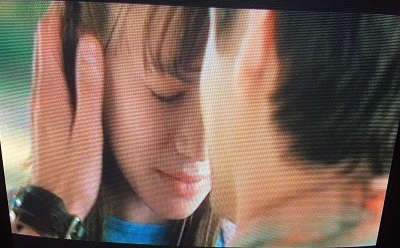
but, even all this is not nearly enough to satisfy one's true mate; this yearning to be accepted and desired, cherished and treasured, must be strictly matched by what Troubadour Spirit-Guide Margaret referred to as “equal ardor,” equal measures of mutually proffered love;
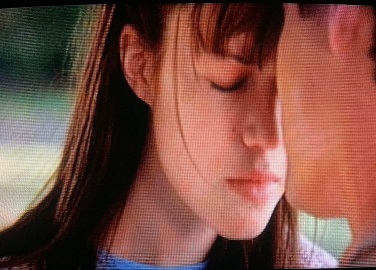
for, a great fear, harbored by the one who was made to love you most, is the lop-sided relationship, the profound dismay and discountenance, the disconcertion and discomfiture, of loving more than one is loved; in this misgiving, the trepidation of lukewarm reception, he begins to lose courage and exclaims, "forgive me for wanting you so";
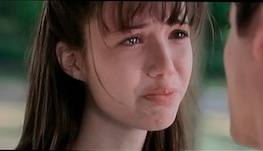
however, such terror of imbalance, the unreconciled ledger of the heart, cannot, in the end, befall those who share a mirroring soul essence; forces come in pairs: the seeming Force A and Force B are not solitaries but a mutually interacting and unitive Force A-B; stated poetically, you cannot touch without being touched; and though John and Mary would disagree, with authentic love it's not possible, at the end, to languish unrequited, as all soul-linked ones will find each other; rather, for some, find their way back to each other;

to refuse to become disillusioned with the never-ending nightmare, the interminable wilderness years, during which, as the poet instructs, “the time I spent confused, was the time I spent without you”; those lost years of unlife, existing now as dreaded memory, haunting realization, of things left undone, unaddressed, at critical hinges of one's history - oh, oh, how few and meager were our halcyon days, how quickly they disowned and fled from us;
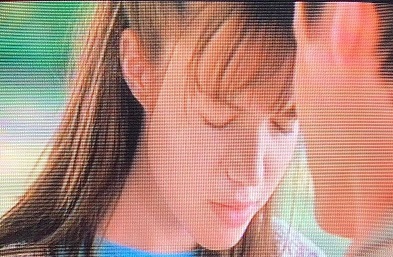
even so, now, with fortitude, to honor the difficult lessons God requires of us; to forgive oneself of the sin of immaturity, of silence when one should have spoken; and then to sense, despite all having gone wrong, that somewhere out there still exists an opposite-sameness created as specific answer to unique definitions, not merely of elation but, of life's purpose; for, with her coming, all "snowflakes begin to fall to their appointed place";
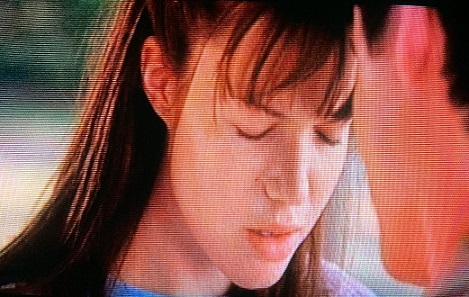
even more, to perceive, in and with her, a new definition of romance and darling companionship, reaching beyond “lover and beloved” with its implicit distance between “subject and object”, extending well beyond egoic duality to the unitive status of the transcendental “One Person”;
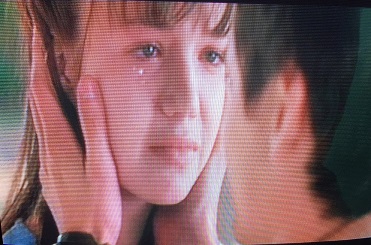
to receive as "tremendous gift" (referred to as such by ancient Spirit Guides), from a destined dearest, more than ordinary creature-comfort and bio-thrill, but to include, as per "The Wedding Song," that most rare commodity - “something never seen before” - immersing one, whether you want it or not, the unbidden perception of utter familiarity, an unscheduled collapse of ego boundaries, an unexpected melding, a deletion of distance with love at the speed of light - with light as harbinger of the only reality - an inexplicable sense of "no you and no me," the overwhelming and deliciously suffocating feeling of "coming home" to the one person in the universe who is just like you, the complete rest to the soul known only in her presence, the swooning ecstasy of an affirming of one's very existence;

all of which, the ancient Spirit Guides attest, becomes the apodictic and conclusive evidence of the coming of the sacred beloved - this is not like John and Mary happily meeting at church or a dance on Saturday night; for, when it happens for you, there is no possibility of mistake as to her cosmic identity; and this why, when it happens for you - like purchasing the proverbial field, no matter the cost, containing the buried treasure of great value, or like returning to Shangri-La, no matter the peril to one’s person - Twin Souls will “leave father and mother,” and every and all societal claim upon them, will upend their well-ordered lives, will do whatever they need to do, to be together; this kind of love creates its own vector of destiny's force, its own morality, is not the ego's choice, but your soul's choice, and the soul cares little whether any of us, at the level of personality, might initially disagree;
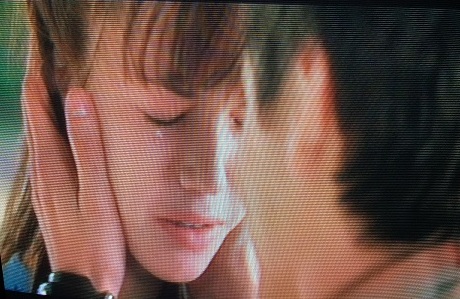
to enter clarity that "made in the image" also means "custom-crafted"; that is, when she, the true mate, finally comes, she will be perfect - perfect for him, perfectly mirroring all that he ever wanted; and even more, for he did not truly know what he wanted until she presented it to him;

to discover that the centuries-debated ordering principle of life, even the chief constituent of heavenly felicity, plus the essence of Divinity's secret mind, find focalization in the radiance of one particular girl; to realize, in a concussion of wonderment, an unremitting astonishment, a flooding sense of marvel, that "existential meaning," his quest to find reason to stay alive, all of his midnight-confession hermitical years of bargaining with God, now take human form, are reified, by one particular girl;
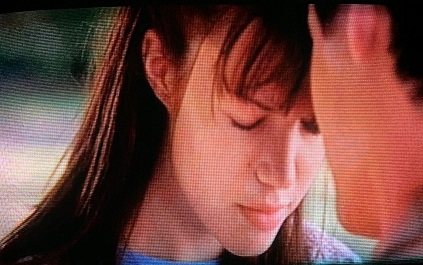
there is no destitution, no searing grief, to surpass the loss of his “one particular girl”; not even the undoing of his own life could compare, for, as he learned, learned to the utmost, during the hermitical years, life was not worth living, without her; as Elizabeth confessed to Robert, "how can it make me happy, such a thing as my life? it never made me happy, without you.”

it has often been asked, will we recognize each other in the hereafter? “ahh, how little,” lamented theologian F.D. Maurice, “we have recognized each other here”; but how difficult to surmount, he warned, the “hindrances to recognition and sympathy”; yes, how did that one particular girl go unnoticed; in some cases, growing up before one's very eyes, but undetected; one particular girl, covertly holding title-deed to a particular other’s life and breath, his very reason for living, but remaining hidden in plain view; truly, this is blindness, indeed; and, yes, how little we have recognized each other here;
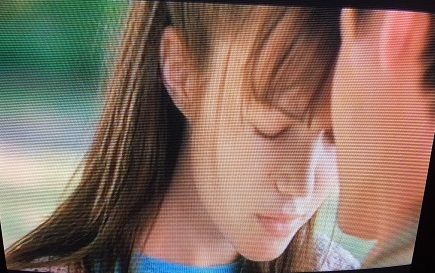
others may commend her beauty as pleasing symmetry, but he sees more than poetry as external form; only he apprehends her beauty as "consonance with the whole," a "translucence," a shining through, "of the eternal splendor of the One" and of the Truth; only he perceives her loveliness as sacred portal to an inner knowing as she reveals, as no other pedagogue, the hidden face of God;

and, therefore, when he exclaims, gushing with superlative, abandoning all caution, that she is the most beautiful girl in all the world, he suffers not from fatuous idealization but speaks accurately; for him it is true, as only he envisions all that she will yet become in a blossoming of latent soul-riches, which manifestation will be shepherded by his encouragement;
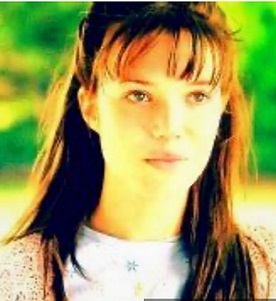
“beauty,” counseled Emerson, “is the mark God sets upon virtue,” even if that virtue resides in potentia; moreover, her “beauty is prophecy,” asserted Jackson Davis, “of the perfection” to come, a commensurate palace wherein dwells a destined eminence; Plotinus, also, suggests that beauty, more than outward form, is the soul's recognition of primordial origins, cosmic purpose, and eternal destiny; there is a perception of beauty not of visual stimulation but communion with a higher order;
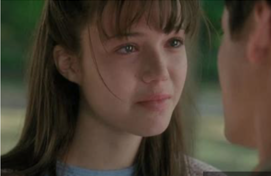
with his assertions of fealty, paradigms shift, one's center of being realigns, eyes begin to open, as she suddenly perceives him as someone new -- the long sought-for Twin Soul, once hidden in plain sight but, now revealed as her destined eternal friend and guide; each to the other is finally recognized, not by outward beauty but, by an inner resonance with one's soul music;

in this cataclysmic-upheaval unveiling of cloaked identity, they enter a magical sanctuary of bonded oneness, a sense of wholeness and integration, of complete rest to the soul, that "secret garden with ancient flower," an enchanted new world wherein the glitter does not fade, romantic fervor knows no abatement, there is no "nasty habit of disappearing overnight";
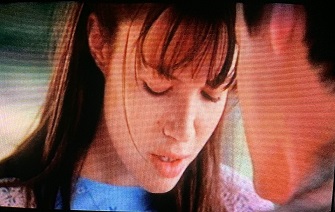
in her coming, the nature of reality itself, the quantum undergirding, becomes transformed; one's spirit is jettisoned, even against one's will, into higher orbit; the once-bleak landscape of dreary existence now shimmers with current of celebration, everything seems to glisten in her presence, the mundane is recast as lustrous, a hint of sparkle invades his head - especially in her beaming expressions of delight to be with him - as the radiant visage of the goddess sets the firmament ablaze, upstaging an envious sun;
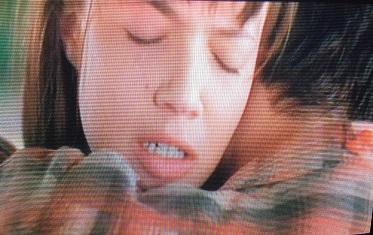
age-old prophesies heralded this marvel; for, with God's salvation of broken dreams, a new creation day dawns, the Spirit once again hovers over roiled waters, all things are reborn and redefined, all things are refashioned and revised, as she arbitrates with herself, and dares, to believe in second chances;

Love Personified unexpectedly arrives and now tabernacles among mortals; the mournful "calling of the heart" is finally pacified; the ancient doctrine of beatific vision is fulfilled in her "made in the image" glory; truly, in a cosmic moment, all things are made new - the abandoned future is reclaimed and rescued, the sorrowful past is redeemed and reinterpreted, and the eternal present moment issues as the reviving and refreshing living waters of resplendent joy;

and now, after so long a time, far beyond the defining moment of ill-fated youth, long after the epicenter of searing loss, sending him to vagrant trudging toward a forbidding prospect, devoid, said Spirit Guide Margaret, of “all that makes life tolerable”; that great loss, the epochal event of destitution, against which he had marked the days of his vacant existence;
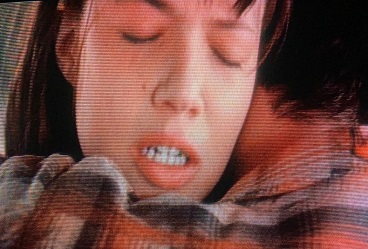
well after the unprepared heart, the puerile torpor of mind, the unrecognized savior, the unreturned call to life, the spectacular failing; as the poet has it, "you say, go slow, I've fallen behind, and the drum beats out of time";
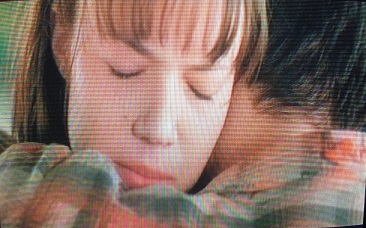
like an aimless sojourner, confused and dazed, wandering in a time not his own, as one long given up as irretrievably apart, he staggers through unlife; but then, slowly, begins to salvage himself, agrees with himself, that suffering has meaning, that the long wilderness years concealed a purpose, that soul pledges and sacred destiny will not be thwarted, no matter the besetting "handicap, obstacle or impediment”.
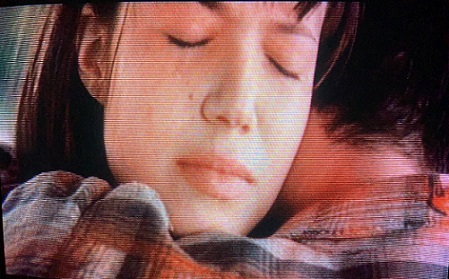
"There is a funeral in my brain"; however, in spite of all that happened, and all that didn't: the chasm-wide divisions of the heart, the unbridgeable parting of ways, the astonishing misreckonings, the radioactive and high-handed unkindnesses, the breath-taking misunderstandings, the outrageous accusations, the unreachable forgiveness, the insolent invective designed to maim and scar, the apoplectic and contemptuous aspersions, the bacchanal revelry of self-destructive intent, the “madness maddened” targeting a former love, the scornful turning away from natural law written upon the tablets of the heart, the high crimes and sins against holy romance -- so severe as to render its victims unwilling, with an oath, to entertain any future rapprochement, in this world or in worlds to come; however, notwithstanding these shatterings and shards of life-and-love which could not be mended, like a farcical dream wherein nothing could be made to go right;

“outrages and unkindnesses” – these charges remind us of words between Kahlil Gibran and Mary Haskell; “I feared,” said she, “that I had harmed that which is between us”; much worse, she wondered if her betrayals would mean that what they had together would now be “forever less,” a tarnished ideal, a lingering unforgiveness, her image as personification of Love sullied, to “all eternity”.
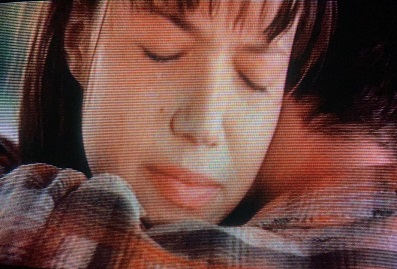
Is this judgment too harsh? for, if so, who could be married? nevertheless - can a man be with a woman, for all eternity, if he cannot worship her, find inspiration from her, envision her, as font of purity, life, and light?
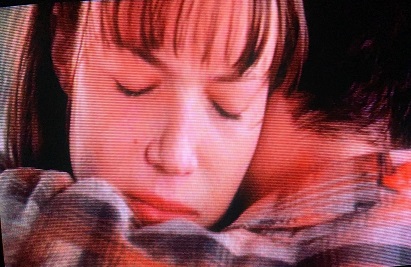
"You picture me, I'm walking too far ahead, you're calling to me, I can't hear what you have said"; despite the systemic and perennial out-of-phase element of their lives; with utmost anomaly, even against his long-cultivated anger and sometimes-defiant ill intention...
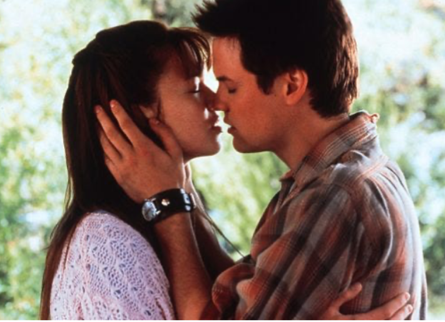
he finds himself spinning toward an unforeseen perdition of the ego ... creativity's ultimate discontinuity ... now colliding with the "translucence of the eternal splendor," awestruck and lost in an amazement of love ... solely to know her, simply to share life with her, just to do all things with her;
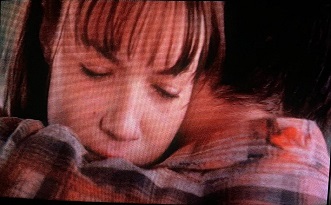
it is the darling companionship "resting in God"; the Gospel of Thomas speaks of "rest", the end of strivings for satisfaction to fill the existential void; the mystic Carlyle Petersilea expressed the same concerning the sacred beloved:
“It was the first time in my life that a sense of home and complete rest had filled my soul… Obey me implicitly in one thing. Do not marry for any consideration [of status, comfort, or physical beauty]; if you do, bitter woe will be your portion, and a lifelong misery on earth; every morning you will desire death, and every night your pillow will be wet with tears… [why will you curse yourself thus?] wait for the counterpart of your own soul.”

Our spirits crave this sense of homecoming and complete rest. Elsewhere, we learned that the Hebrew text of Genesis conceals this very concept. Man and Woman seek for each other by a principle of “gluing.” This acknowledges a present psychological condition of “I am half, I am bereft, I am separate from the one meant to complete me”; until she is found, there will be no soul-based peace and tranquility; with her arrival, waves of homecoming and complete rest might inundate;

therefore, we advise ourselves to wait - wait! for “the sense of home and complete rest to the soul” experienced only in her presence; wait, for “the great relief of having you to talk to”.
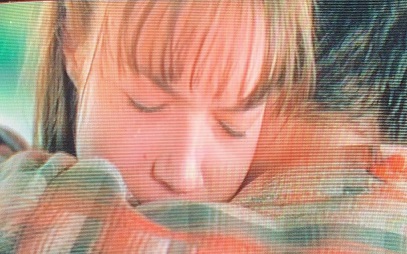
Can love deceive us? We know the answer too well, but what if the evidence suggests the existence of a real soul-bond? The answer is still yes, we can be deceived, even for a very long time; but, how can this be, as only a soul-bond might engender certain higher experiences of love? as such, how could it be possible to fall victim to false reading?
The answer is, there can be many soulmates, ones with whom we share significant bond, but, among these, there will be only one Twin Soul. A mere soulmate, one we are not meant to marry, might offer momentary glimpses, faint echoes, tiny flashes of mystical experience. It can all seem very real, and it is real, but only as sign-marker to another yet to come.
How to protect ourselves from this grand delusion? David Bohm said it best, “We have to be constantly sensitive to incoherence” as “the ego will distort reality" to impose its will. We want this too much, and so we allow a degree of blindness, beguiling ourselves. Yes, the soulmate will offer a measure of evidence of authentic soul-bond, but it will come with warning signs, a sense that something is not altogether right. The mere soulmate can provide a transitory “rest to the soul,” which severely deceives us, as it feels so good - and therefore we might easily repress the “incoherence,” the nagging doubts, attendant to the passing sense of “rest”.
However, a day will come when we meet the authentic Twin Soul. With her, there is no momentary "rest to the soul," no fleeting glimpse, no dying shooting star; with her, it’s all steady state, steady stream, a continuing glowing soul-vibrancy that refuses to shut down. And I think this is the real test of authentication.
The difference is utterly stark and internally disheveling. And in the tidal wave of her coming -- her dazzling and scintillating spirit and life-essence -- she sweeps away all that you thought you had with another, a relationship which may have endured for many years, but reduced to escape from "human bondage".
Twin-Soul love, all that she is to you, now instantiates itself as ultimate reality.

Let us epitomize, in short compass, all that we've said here, the essence of her tremendous gift. What is it like to meet the true mate?
Outwardly, she is not more beautiful than other stellar girls; nor, objectively, is she more inwardly refined than her peers. But, she will make you feel that she is. Strictly speaking, she enjoys no special ability to accomplish this marvel, in that, her offerings are not greater in degree but different in kind.
The epicenter of difference lies in the affinity of particularized soul vitalities; you can’t have this with just any pretty face. What she is, her deeper person, will perfectly match, in an opposite-sameness way, the essential you. This unique confluence overwhelms as the “utter familiarity,” the “coming home,” the “complete rest to one’s soul.”
All this acknowledged, Dr. John Welwood might offer the best description of the process: “A soul connection is a resonance between two people who respond to the essential beauty of each other’s individual natures." Exactly correct.
Very often on WG it’s been put forward that encounter with a mere pretty face is something that strikes one as “empty.” But now we know what that emptiness is about. It is to seek for the reflection of the beauty of one’s own essential nature, in another, but to come up empty.
This reflected existential energy from the true mate issues as unbroken flow, a continuing sense of a beauty so great as to invite the unreasonable superlative "I have discovered in her eyes and visage the hidden face of God" - and this shocking perception becomes the clinching test, identifying authentic romantic love.
The unions of this world, with resolve of will, pledge to "forsake all others." But this votive forbearance does not apply to authentic love and marriage, because there are no others. The tidal wave sweeps clean.
phototropic
I’ve sometimes depicted an immature boy as an “insensate worm only vaguely aware of the light” – I have no idea how such image could come to me, but – why should we become aware of light at all?
Many times in these writings it has seemed only natural to describe the true mate in terms of light’s splendor: radiant, shimmering, glowing, scintillating. Is it not more than overused metaphor to suggest that she, like the sun, becomes a life-source, to a certain one transfixed in orbit? And is he not like an unfolding blossom, tracking the arcing movement of the morning sun, drawn to its vivifying energies?
Phototropic is a good word for us; literally, “turning” toward “light.” And isn’t this a prime function of her divine commission? leading her mate – the very one she once knew as insensate worm – leading him, by the effulgence of her sainted person, into the empyreal realms of higher levels of consciousness.
In this respect, she is like a quasar, the brightest light source in the universe, bedazzling, outshining, adumbrating, entire galaxies. But only to you. It is the quasar within, a super-enveloping light display of mutual resonance, declaring the beauty of the beloved's essential nature.
|

This - this! - is what we stay alive for.
|
|
Tom Schulman: "We don't read and write poetry because it's cute. We read and write poetry because we are members of the human race. And the human race is filled with passion. And medicine, law, business, engineering, these are noble pursuits and necessary to sustain life. But poetry, beauty, romance, love, these are what we stay alive for.”
|
|
Of what use is a newborn baby?
In the movie “The Monuments Men” a small group of WWII soldiers is tasked with saving Europe’s art treasures from destruction by the Nazis. Later President Truman is given to ask, was it worth the life of even one man to preserve a mere work of art? Within a certain context, this question has merit. However, if the underlying sentiment – a primacy of utilitarian function -- is taken too far, it becomes self-defeating. We’re reminded of Ben Franklin’s response to a similar question, “Of what use is a newborn baby?” Clearer minds have realized that life, without a pursuit of the noble, the aesthetic, the beautiful, would not be worth living. Without the higher and more excellent expressions of the human spirit – art, poetry, music, love, romance, beauty, all of the things we stay alive for – humankind will sink into a stultifying and dystopian materialism. And this is why another President, John F. Kennedy, almost as a warning, asserted, "The life of the arts, far from being an interruption, a distraction in the life of a nation, is close to the center of a nation's purpose - and is a test of the quality of a nation's civilization."
|
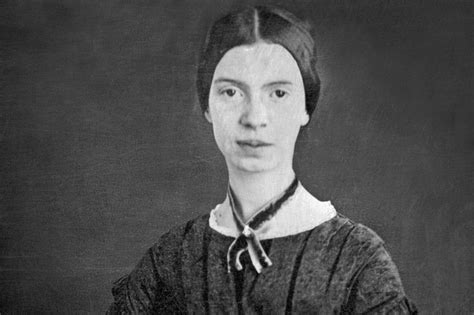
|
Emily Dickinson (1830-1886), the thoughtful observer of life and great poet; unpublished, unrequited, in her lifetime. Without acclaim, she shared her poems in letters to friends. This nondescript spinster, however, secretly dreamed of a full life of love, yearned for in the jab-and-punch writing, “Wild nights - Wild nights!" The exclamation mark and capitalization are hers.
|
.PNG)
"the tidal wave of her coming sweeps away all that you thought you had..."
what is it about love that we find so compelling
|
Dr. John Welwood:
What is it that we enjoy most about falling in love? What makes it feel so wonderful, so powerful and compelling? What does it give to us that we value beyond all else?
READ MORE
|
|
what is it to live but to feel the life in you, all the fibres of being, passionately and joyfully

|
Elizabeth's love letter to Robert, March 20, 1845: “You seem to have drunken of the cup of life full, with the sun shining on it. I have lived only inwardly; or with sorrow, for a strong emotion. Before this seclusion of my illness, I was secluded still … I grew up in the country – had no social opportunities, had my heart in books and poetry…
my life, drooping toward the ground like an untrained honeysuckle
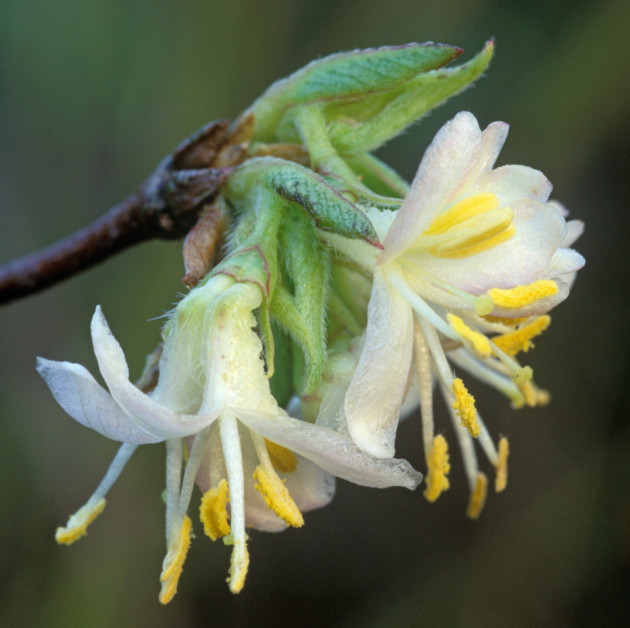
"My sympathies drooped toward the ground like an untrained honeysuckle… It was a lonely life... Books and dreams are what I lived in… And so time passes and passed – and afterwards, when my illness came, I seemed to stand at the edge of the world with all done … I turned to thinking with some bitterness that I had stood blind in the temple [of life] I was about to leave – that I had seen no Human nature, that my brothers and sisters of the earth were [mere] names to me, that I had beheld no great mountain or river, nothing in fact…
what is it to live
"I am, in a manner, as a blind poet… how willingly I would as a poet exchange some of this lumbering, ponderous, helpless knowledge of books, for some experience of life and man… What is to live? Not to eat and drink and breathe, -- but to feel the life in you, down all the fibres of being, passionately and joyfully."
|
I began to believe in us only when you said that you cared for me 'not for a reason' - then I knew
|
Elizabeth’s love letter to Robert, November 15, 1845: "Shall I tell you… The first moments in which I seemed to admit to myself in a flash of lightning the possibility of your affection for me being more than dreamwork… the first moment was that when you intimated (as you have done since repeatedly) that you cared for me not for a reason, but because you cared for me.
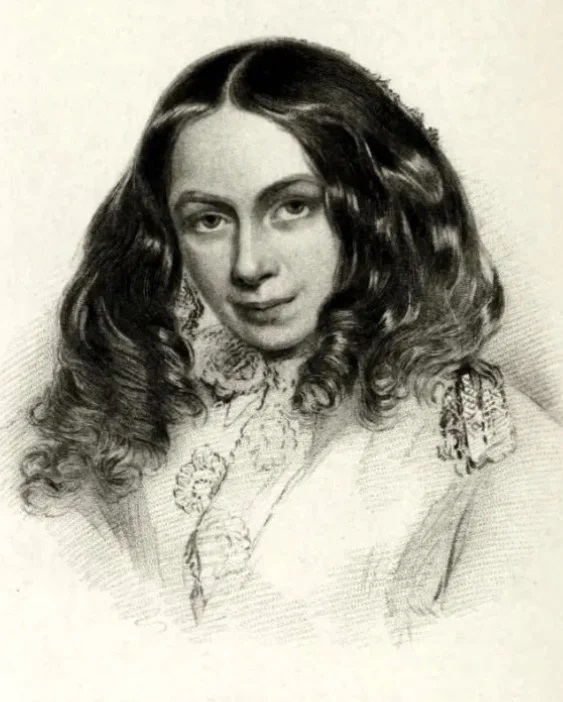
not for a reason
"Now such a parceque [a “because”] which reasonable people would take to be irrational, was just the only one fitted to the uses of my understanding on the particular question we were upon… do you see? If a fact includes its own cause… why there it stands for ever – one of the 'earth’s immortalities' – as long as it includes it. And when unreasonableness [a sardonic reference in that true love is not founded upon ostensible reason] stands for a reason, it is a promising state of things."
|
wilderness without blossoming rose, lampless dungeon, despair's black gaping hole; but then, pinnacle of mountain, the silver flooding, of your coming

|
Elizabeth’s love letter to Robert, January 10, 1846: "It seems to me... that no man was to any woman what you are to me -- the fullness must be in proportion, you know, to the vacancy [that is, in contrast to her previous most lonely and empty life]… and only I know what was behind – the long wilderness without the blossoming rose… and the capacity for happiness, like a black gaping hole, before this silver flooding… I should stand as in a dream, and disbelieve – not you – but my own fate. Was ever anyone taken from a lampless dungeon and placed upon the pinnacle of a mountain, without the head turning around and the heart turning faint, as mine do?
how shall I ever prove what my heart is to you, how will you ever see it as I feel it
"And you love me more, you say! – Shall I thank you or God? Both – indeed – as there is no possible return from me [in terms of repayment] to either of you. I thank you as the unworthy may … and as we all thank God. How shall I ever prove what my heart is to you? how will you ever see it as I feel it? I ask myself in vain."
Editor’s note: We gasp in astonishment at the beauty of The Great Poetess’s testimony, a startling and vivid display of words-as-imagery pressed into Love's service.
|
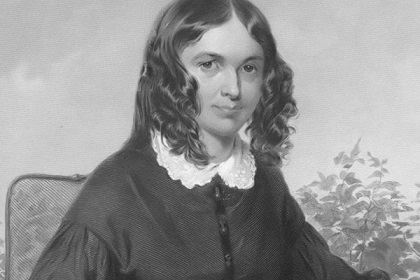
before I knew you, what was I and where, what was the world to me, and the meaning of life
|
Elizabeth’s love letter to Robert, February 24, 1846: “I am living for you now. And before I knew you, what was I and where? What was the world to me … and the meaning of life? … Then, when you came, you never went away…
frightened of your power over me
"Do you know that … I was frightened of you? … I felt as if you had a power over me and meant to use it, and that I could not breathe or speak very differently from what you chose to make me. As to my thoughts … you read them as you read the newspaper – examined them, and fastened them down, writhing under your long entomological pins [that is, like an insect pinned to a chart for study].
you came to love whomever you should find, imperfections and all
"But the power was used upon me – and I saw … very early … that you had come here to love whomever you should find [the spirit revealed in my writings; no matter my faults or imperfections, as you loved these, too; you loved me "not for a reason"; further, my early attempts at self-effacement and deflecting your love] had just operated in making you more determined [to reach me]…
nothing has humbled me so much as your love, like God's own love, making the receivers of it kneelers
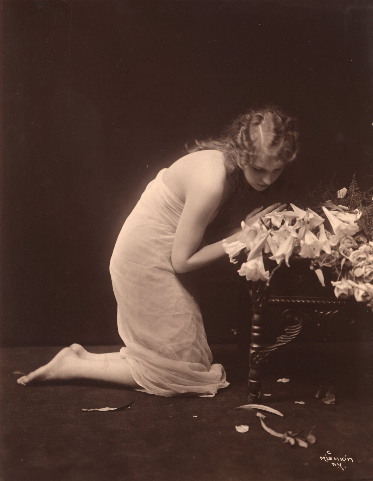
"But I may say before God and you, that of all the events of my life, inclusive of its afflictions, nothing has humbled me so much as your love [which] has been to me like God’s own love, [making] the receivers of it kneelers.”
|
how can it make me happy, such a thing as my life; it never made me happy, without you
|
Elizabeth’s love letter to Robert, May 20, 1846: "... while the heart beats, which beats for you… my life, it is yours, as this year has been yours. But how can it make me happy, such a thing as my life? There, I wonder still. It never made me happy, without you.”
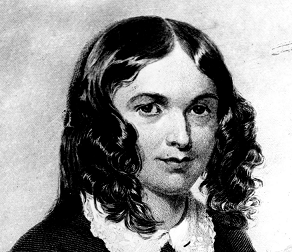
a stellar spiritual literati, a pantheon of witnesses testifying to the primacy of authentic romantic love
Editor's note: During the last 25 years, the construction of Word Gems, I have reviewed the literary work of many great female thinkers of history. Among this “natural and irresistible aristocracy,” as Thoreau viewed it, Elizabeth Barrett Browning, Heloise of Argenteuil, Emily Dickinson, and Abigail Adams I count as most wise and, indeed, most felicitously and passionately articulate.
But, within the realm of authentic romance - though we mourn with Heloise, her "how much I have lost, beloved, in losing you," and with Emily, her “terror” of love gone astray which she “could tell to none” - we must offer some small measure of deference, I think, to Elizabeth, the great artist and sage, the great wordsmith and evangelist, of the heart’s raptures.
I am living for you now
Elizabeth's fervent assertions, an outpouring of inmost being, "how can it make me happy, such a thing as my life, it never made me happy without you," strike at the depths of our humanity, "what we stay alive for"; or, as the once "drooping untrained honeysuckle" announced to Robert, "I am living for you now." Is there another reason?
a portal to knowing, a cosmic destiny unfurled, a splendiferous shining through

Vincent van Gogh, reaching for superlative, exclaimed that “when facing” the beauty of “a flat landscape, I see nothing but eternity.” But it’s not just horizons and nature-scenes which might enthrall – all expressions of beauty, if we allow, will open a portal to a wondrous inner world of mystical knowing.
authentic romantic love, the best means toward self-realization
However, there is one avenue to the sublime which opens the door to the soul widest of all. As we learn from Kahlil Gibran, via his biographer, "love is a means - perhaps the best means - to self-realization, without which one is less than a full person"; which suggests that we find our godlike maturity only with love's mediation.
This augmented level of sentience is what "The Wedding Song" refers to as lovers "giving life," each to the other. Such reciprocity becomes aid to evolvement, an opening of the eyes to how things truly are and what they portend for us.
The sacred beloved, more than any other agent of vivification, serves as catalyst to this enhanced awareness. With her, one “sees nothing but eternity,” a cosmic destiny unfurled, an invitation to the mind of God; without her, he will not find reason to fully develop himself.
She is the one he stays alive for; it is she, her "made in the image" beauty, which ignites "the translucence," a shining through, "of the eternal splendor of the One" and of the Truth; and without receipt of such he will not endure the terror of living forever.
a hand for each hand, the original plan for the world

The little boy sitting in the corner had it right: “a hand for each hand was the plan for the world” – the hand of “one particular woman,” as Dr. Campbell put it, to complete the hand of “one particular man.”

CHROMA GALAXIES by Roman De Giuli
"no one there can fill your desire"
We were meant to live in community. We yearn for the company of friends and neighbors, supporting each other in life. So strong is this wish for brotherhood and sisterhood that, at times, as Father Chardin mused, it reaches almost to the level of “sensual longing.” Even so, affable association and cordial friend - none of this pleasant conviviality - can fill one’s desire.
Neither avuncular favor nor maternal warmth, not even a large kindred gathering, an immersion into familial goodwill and amity, can fill one's desire. Even in that affectionate crowd of doting loved ones, a plenary session of fervent smiles, well-wishes, and hugs all around, you will still find yourself - if only subliminally, that vague uneasy sense of - missing someone.
O thou soul of my soul
Mourning the loss of his Elizabeth, Robert Browning in Prospice [“to look forward”] soars in high-flight, addressing her, O thou soul of my soul. Many in the history of literature have spoken of woman as the life of man, but never so poignantly and felicitously. And if one’s soul could shelter a soul of its own, what would this signify? - nothing less than epicenter of meaning, purpose, and “what we stay alive for.” And so, with O thou soul of my soul, we glimpse a remedy for "no one there can fill your desire."
unlawful savior and covenant
John and Mary cannot fill each other’s desire; "besotting infatuation” with illegitimate savior, the “ill-fitting covenant,” the settled-for second or third choice, albeit sprinkled with ecclesiastical blessing, cannot fill one's desire.
Their problem is spiritual in nature, with biological impulse and instinctual response unable to offer solution. Only two souls in love, two created for each other, can fill the unremitting existential void, two spirits longing for authentic union.
the great harmonia
There are three bases for marriage: biological, psychological, spiritual. Andrew Jackson Davis offered analysis in his seminal work “The Great Harmonia.” The vast majority wed for the wrong reasons and, in so doing, counterfeit and debase what was meant to be, what Spirit Guide Margaret called, the holiest of human endeavors; even the Pope decried this merchandizing of human flesh.
super stimuli
Biological attractors animate the majority, licensing Niko Tinbergen’s “super stimuli,” mere temporary fever, a boiling of animal inclination. Psychological drivers, too, incite to riot not a few: here we find marriage as antidote to fears of never finding happiness, apprehensions of disgrace and not being chosen, terrors of facing old age alone.
All this defines what passes for marriage in our world, but none of it is honored in the “better neighborhoods” of Summerland. It is only the spiritual marriage, the coming together of Twin Souls, which is recognized in the courts of heaven.
true love: of the soul, not body
“The Wedding Song” speaks of a “calling of the heart.” It is a desperate cry of the hidden person, a cry in the night - the long dark night of the soul; a cry to be answered only by a “union of spirits," the authentic accord of mind touching mind. In this "knowing as one knows oneself," the secret desolation within begins to recede.
True love is rooted in the soul, not the body, and therefore only things of the eternal soul will endure; things of the flesh begin dying at the moment of birth. And unless one's affections represent an extension of the soul's purposes, there will be no enduring romantic relationship. This rule stands unmoved and inviolable.
existential beauty, consummate mystical experience, freedom from illusion, full experience of reality
The once “blind poet,” with her “lumbering, ponderous, helpless knowledge of books,” when true love came knocking, suddenly grasped the total field of what it means to be human. It is “not to eat and drink," Elizabeth exclaimed, "but to feel the life in you, down all the fibres of being, passionately and joyfully.”
Yes, "to feel the life in you"; as such, this life, this “truth, is a living thing,” and when it becomes energized with the advent of the sacred beloved -- the "existential beauty," a "consonance with the whole," the consummate mystical experience -- it will not only pulsate with warming vitality at the core of being but brings “freedom from illusion” and offers “the full experience of reality.”
more than one dared wish for
There is but one particular girl to fill his desire; he offers her the same exclusive gift. They find each other in the Dazzling Darkness. Together then, as darling companions, adventuring through eternal life sharing all experiences, they enter a sense of wholeness and completeness attained, of meaning and purpose actualized; of sacred destiny realized, of soul-pledges deliciously satisfied.
They inhabit perceptions of "coming home," of the utterly familiar, of "you are more than I dared wish for," of extreme delight, of "you are just like me," of "soulmate, myself."
But most of all represented by 'touching foreheads', symbolizing a 'union of spirits,' a sacred and erotic meeting of minds.
the movie Hostiles (2017), Rosamund Pike and Christian Bale
All this, indeed, issues as final answer to the "calling of the heart," an emergence from the abyss of aloneness, as it fills, to the top, the pleadings of unexpressed yearning, the indictments of unquieted passions.
ready communion and unbroken fellowship, minds in ecstatic union
With greater maturity, we perceive identities revealed - who’s who and for whom. And in that day of sightedness, minds created for each other will live in rapturous and euphoric union; an emulation of the joyous spirit of the Divine Parent(s).
This ecstasy of ready communion and unbroken fellowship, of sharing all things as darling companions, of "the great relief of having you to talk to," of love "not for a reason," removes the terror of eternal life, provides impetus to unfold the soul's hidden potential, finally satisfies and fills beseeching human desire, and becomes ultimate reason to stay alive for.
|
|
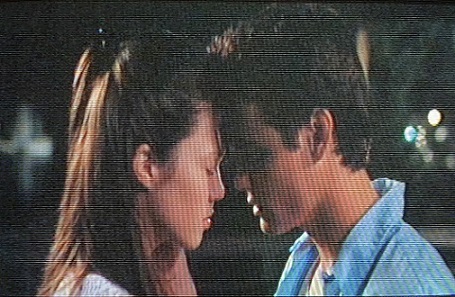
|
The Dazzling Darkness is a concept representing a frame of mind untrammeled by the dysfunctional ego. Therein, freed from base-alloy lower-nature inclinations, one might apprehend not only the identity of one’s true mate but also a realization of the living presence of God in one’s life. READ MORE
|
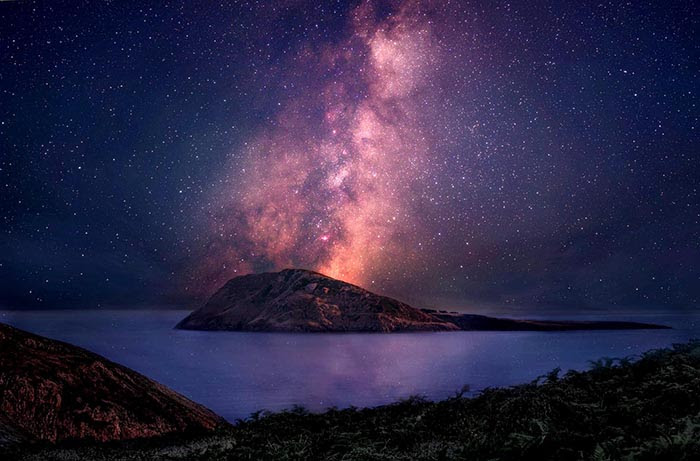
|
downloading the entire Word Gems site, securing your own personal copy
READ MORE
|
Word Gems was created in the year 2000
© copyright

|


